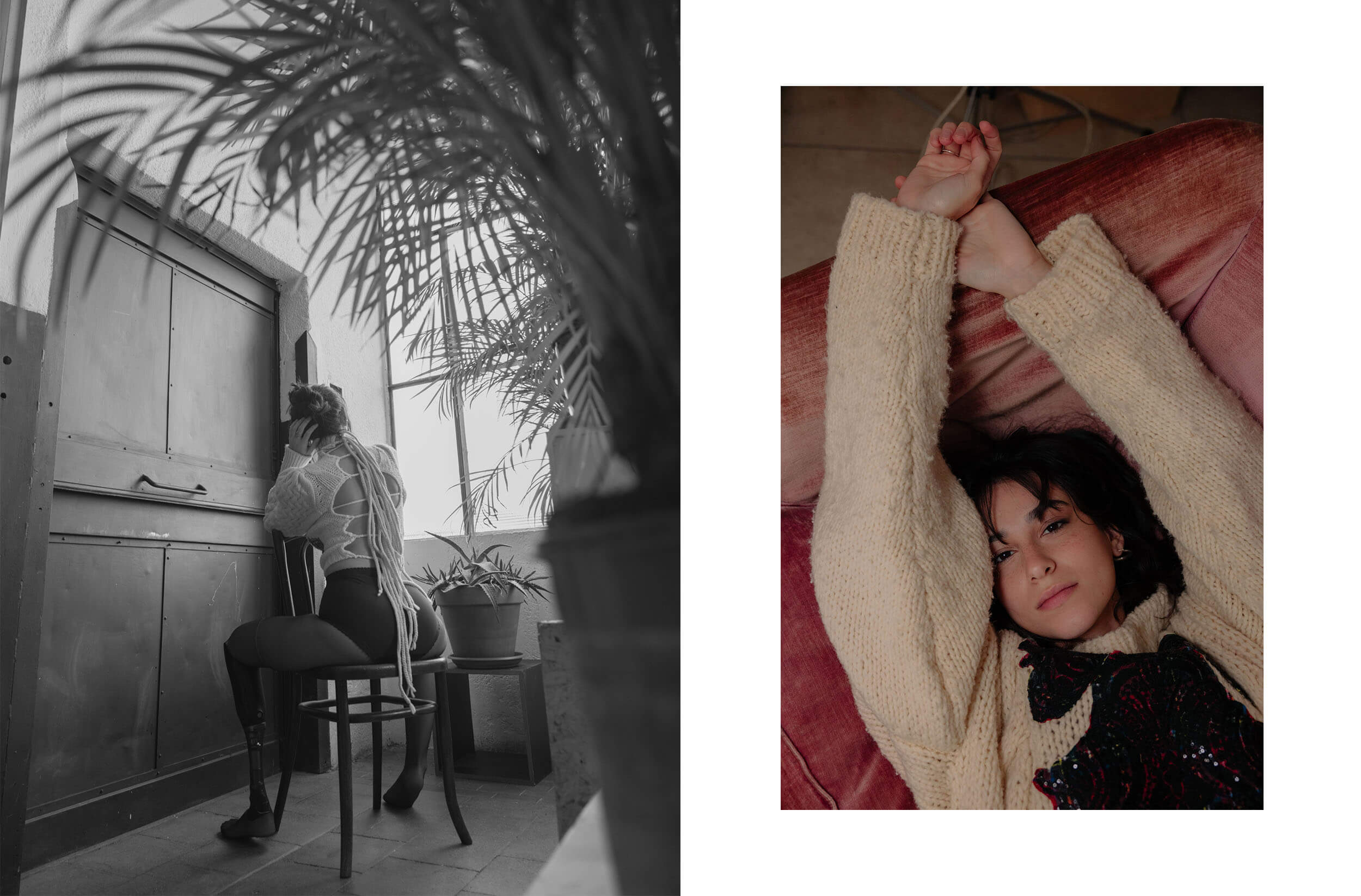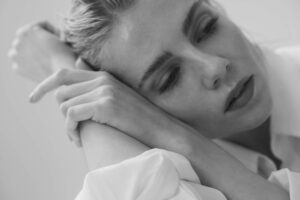The version of herself that she likes the most.
The version of her that we like the most.
Our February Cover Story knows what she’s saying and what she’s doing.
Our February Cover Story is Chiara Bordi.
Chiara is one of the main characters in the new TV show “I Fantastici 5”, now airing on Italian television (on Channel 5). The series is focused on the world of parasports and the stories of young athletes: a huge step ahead in the Italian television representation of the theme, defeating stereotypes and offering an unprecedented perspective on the challenges and passions of athletes with disabilities.
Chiara’s story, for its part, is touching and inspiring: a story of determination and passion for life that keeps finding a new way of expression. During our chat, Chiara shared anecdotes and reflections on her experience on set and the meaning of the show itself: a portrait of paralympic sports that detaches from the pietistic clichés to introduce complex and unconventional characters.
With her strength, determination, and honesty, Chiara proves to be a unique artist ready to face new challenges, keeping on inspiring with her artistic choices. With projects like “Prisma” or “I Fantastici 5”, Chiara proves that resilience, passion, and courage can transform any challenge into new opportunities.
What is your first cinema memory?
I remember that as a child, my sister, my parents, and I had a great passion for Walt Disney movies. My mother collected original Walt Disney tapes, so my sister and I would spend hours watching the same animated film over and over again… That is one of my very first cinema-related memories.
The same thing happened in my house!
Really? [laughs] I think it does in many households, fortunately, or unfortunately, because most of our traumas are related to Walt Disney.
In particular, I remember “The Lion King 2”, where there is a character called Chiara and a moment when her father scolds her and shouts her name very loudly: my parents say that every time, I would start crying because I believed he was mad at me [laughs].
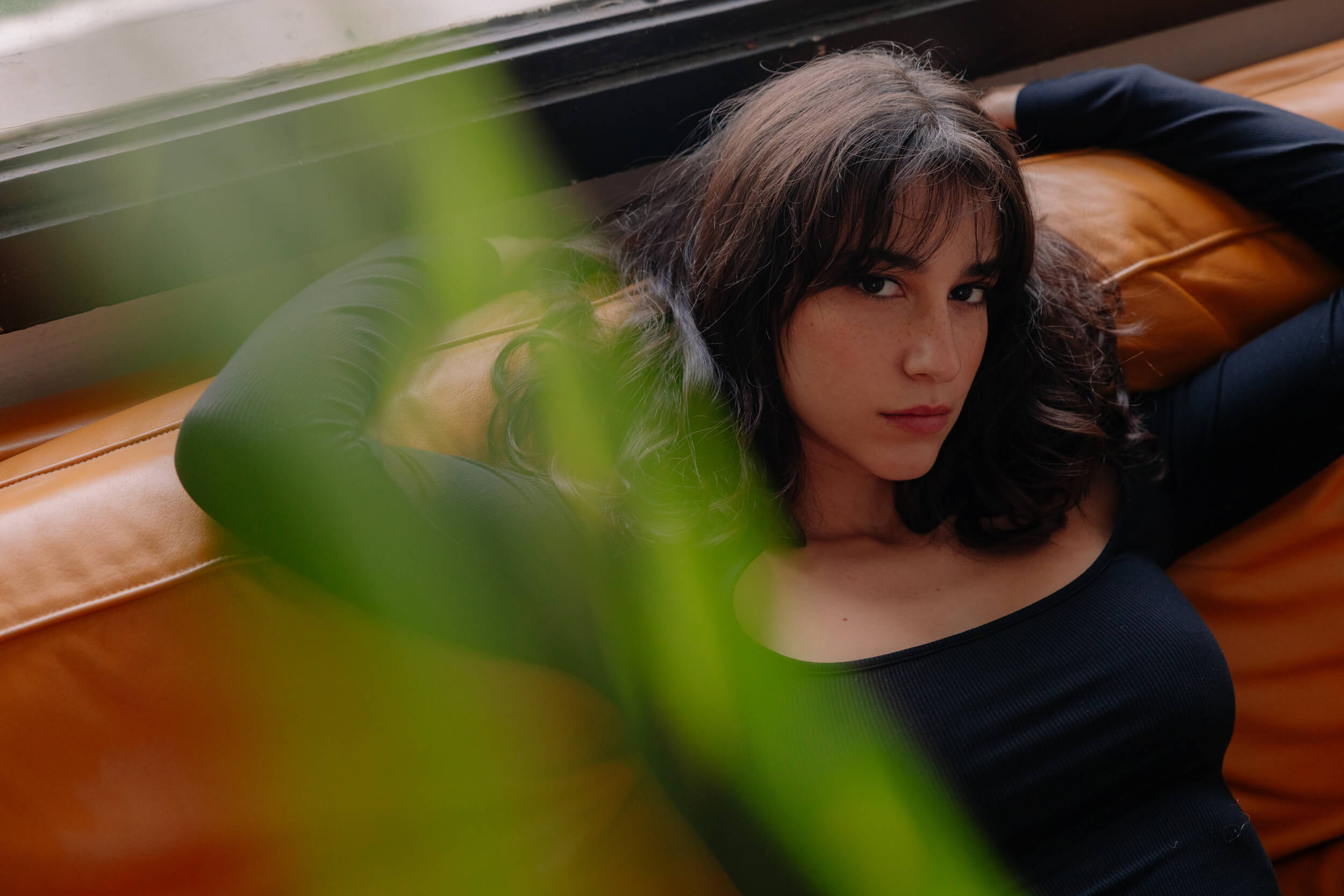
Let’s talk about your latest project, the series “I Fantastici 5”. The protagonist is parasports, a topic not widely explored on television, at least in Italian TV. What was your reaction when you read the script for the first time? What attracted you to the story?
Certainly, the fact that these characters are portrayed in a way that is far from a pity perspective; in fact, several characters are initially very unpleasant; although for me, being part of this world for a few years, this seems normal, for society, it is often a combination that is not told, precisely because there is an internalized ableism that makes it difficult to imagine that a person with a disability can be very unpleasant, and you might think, “What a jerk.” However, except for my character, the guys from “I Fantastici 5” are very unpleasant, which I think goes beyond stereotypes.
In addition to this, I liked the passion that my character has for sports: the issues that arise are tangentially related to the disability of the characters, but in reality, it is all about the passion for sports.
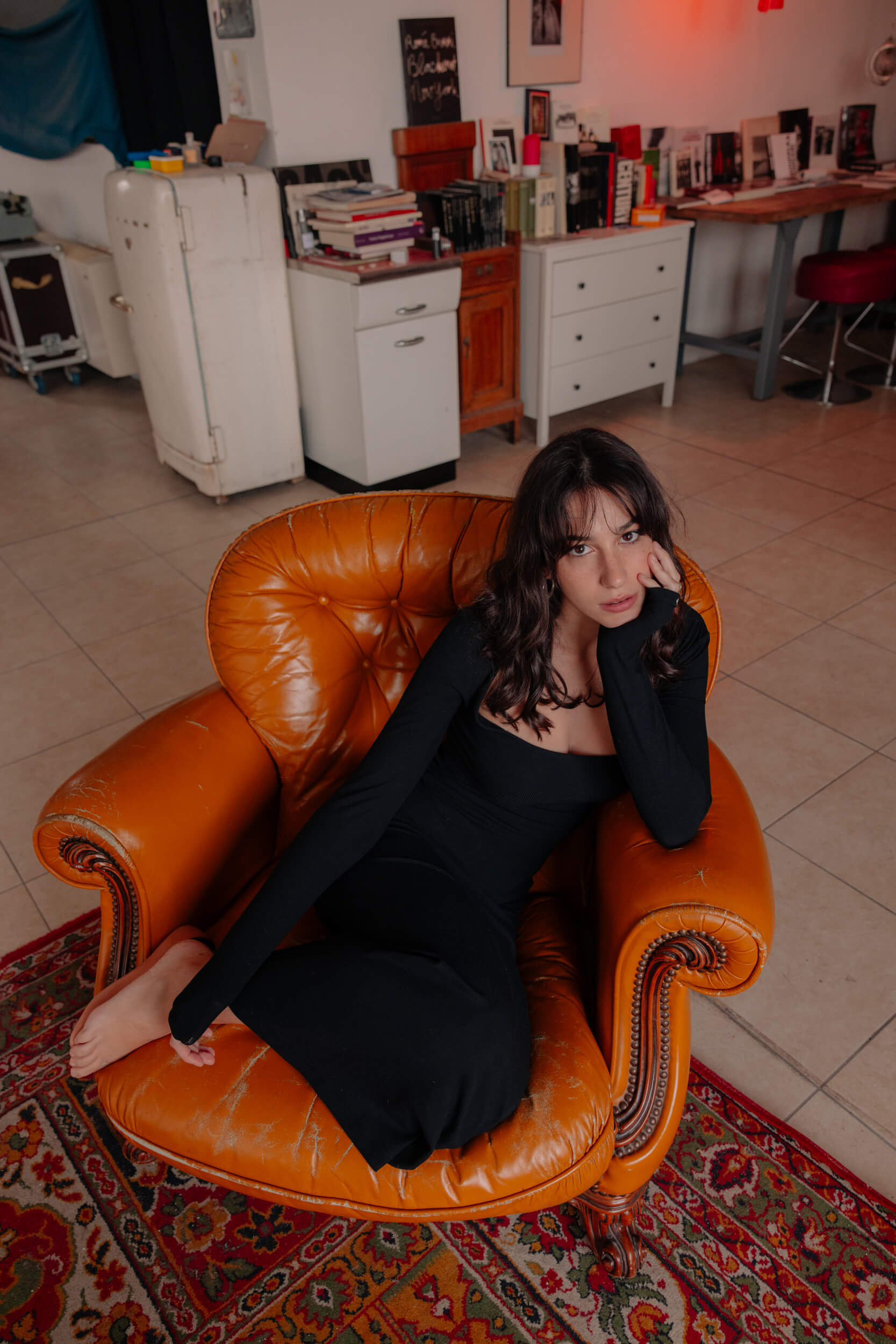
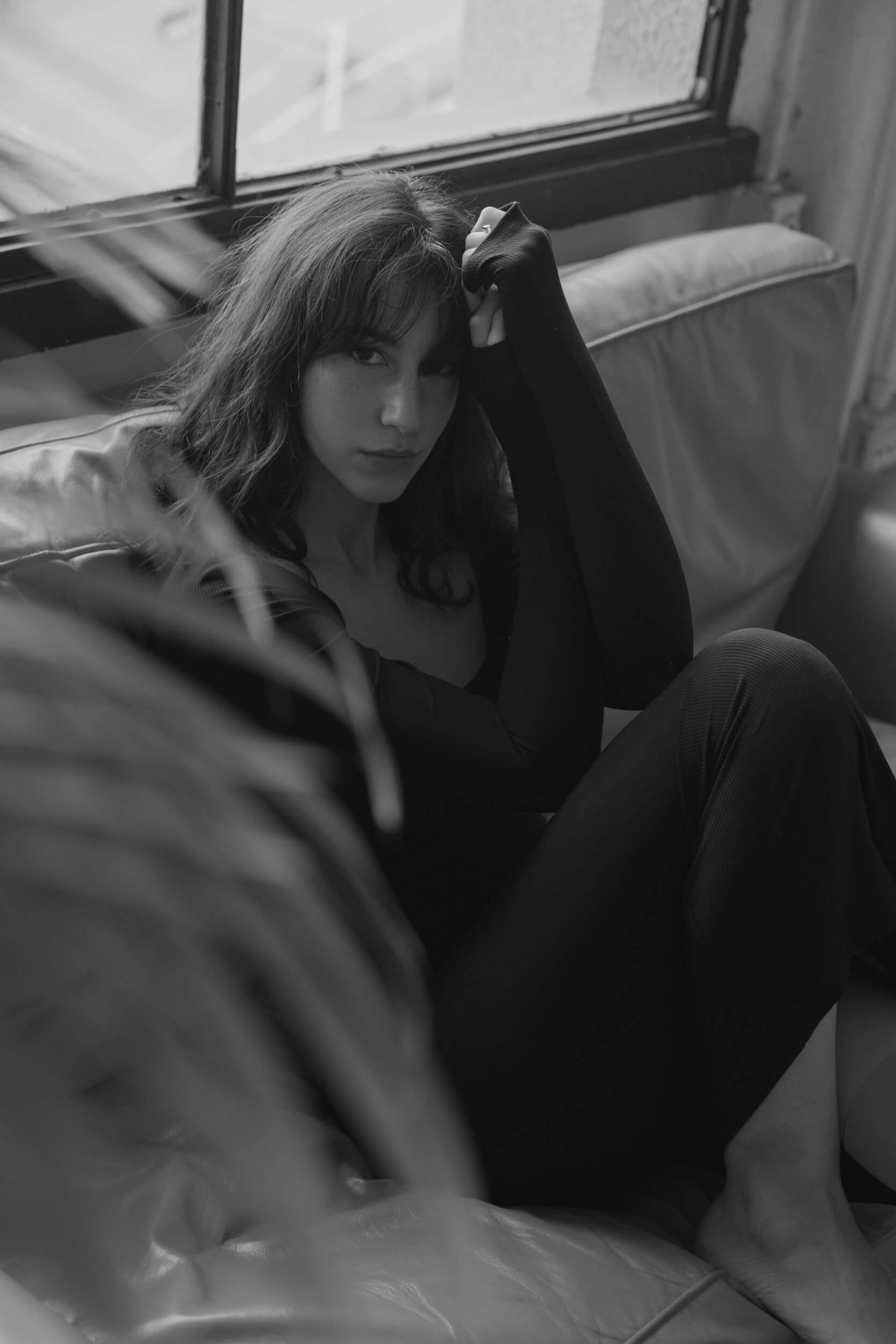
And how do you think the series will contribute to a better understanding of parasports and raise awareness on this topic?
It will certainly help just by telling the story because, for a long time, parasports were considered “inferior” to able-bodied sports. For example, the prize money for winning at the Olympics is much higher than that for winning at the Paralympics, or the Paralympics in Rio in 2016 were followed by very few people, so there is an underlying idea that the Paralympics are not on par with the Olympics. Moreover, parasports are often linked to stereotypes that participants are heroes or seen as “vehicles of teaching”. It is the wrong attitude to have because Paralympians are athletes who have chosen to be there, doing sports and competing in the Paralympics with the same commitment and passion as those in the Olympics. In my opinion, this series shows a lot of competitiveness, and a lot of passion, and I believe it will help people understand that parasports are just as valuable as Olympic sports.
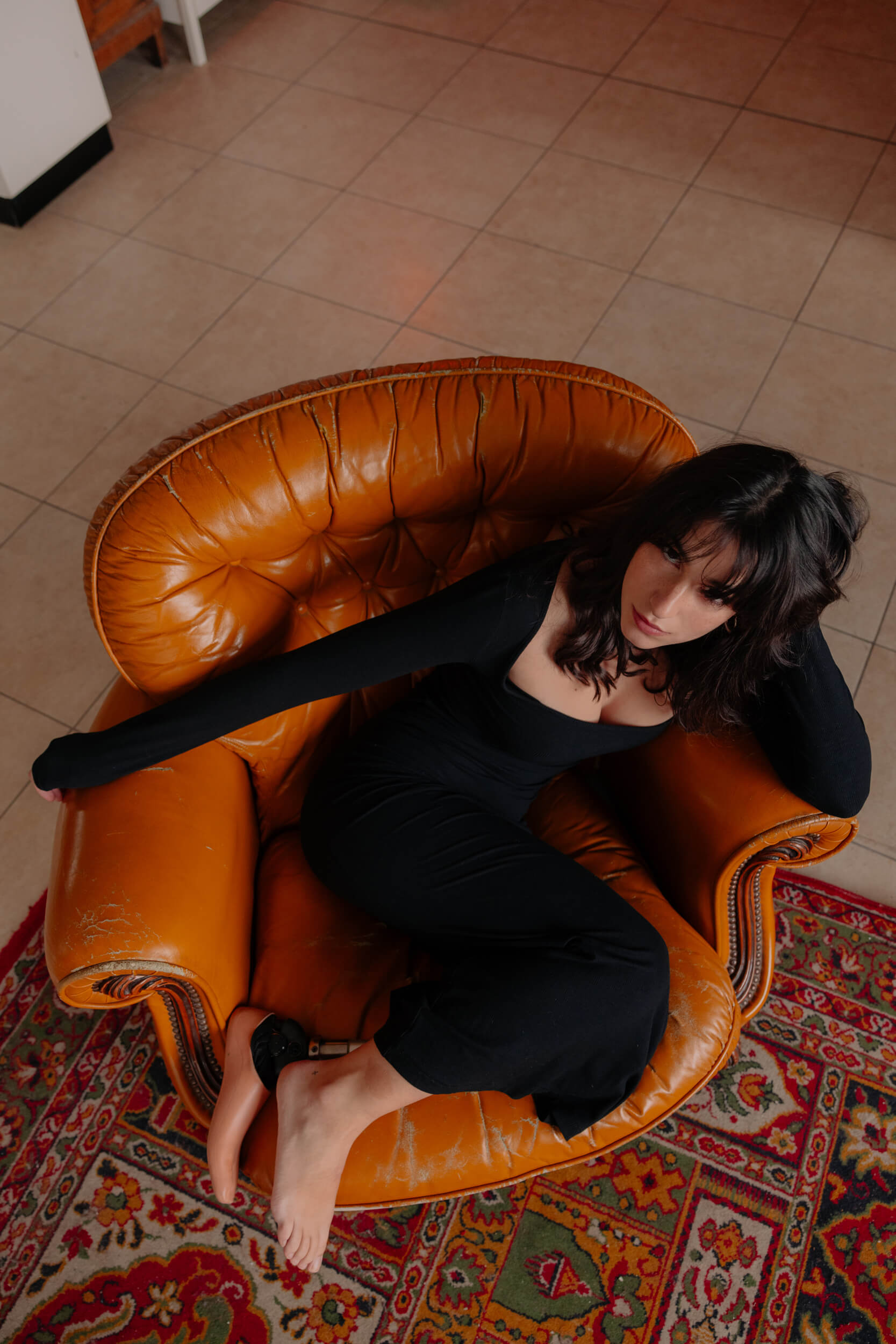
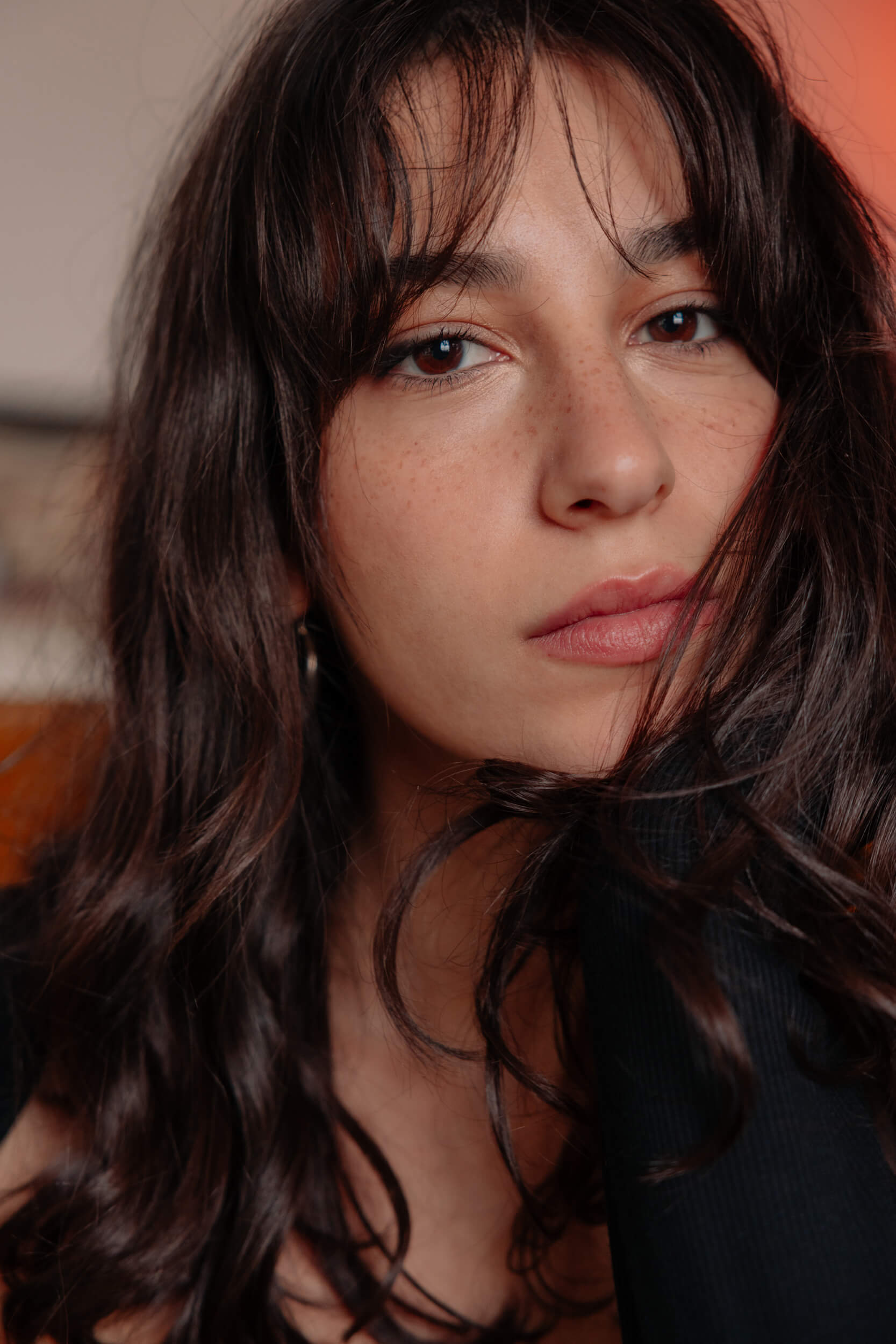
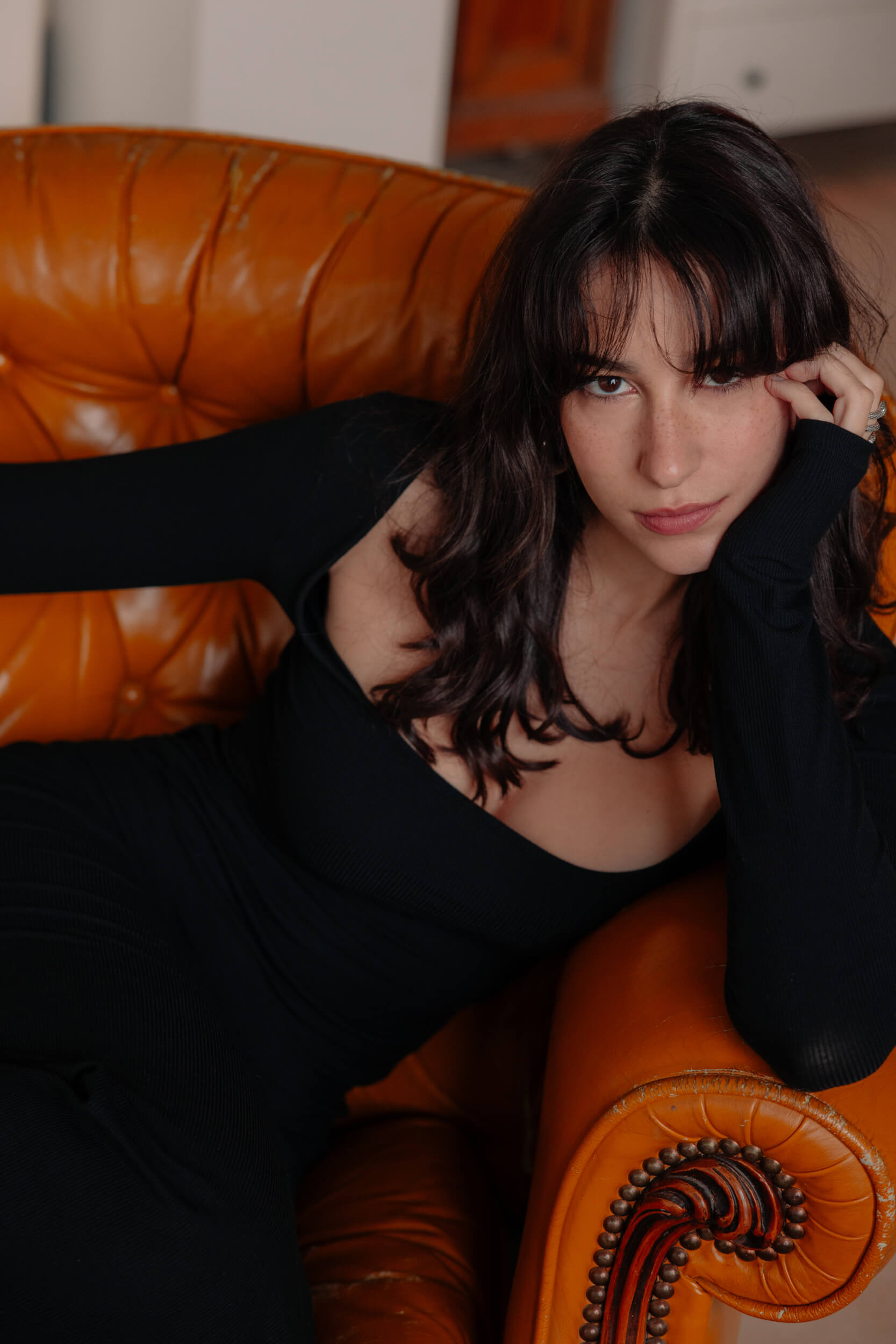
Your character, Laura, undergoes a very significant transformation in the story, from an accident that changes her life to the decision to become a Paralympic athlete. How did you face the challenge of portraying such a profound transformation, and what message do you hope to convey through Laura’s story?
The story begins at a point where all the characters are already in a phase of acceptance. My character, therefore, has processed everything that happened to her: the accident is recounted, but what happened from that moment until the present when she became an athlete is not revealed. I, of course, knew what the character had gone through and always took it into account, but Laura’s story is mainly about passion. She is a very determined person who sets the goal of joining the most renowned sports society in Italy, and she has a great passion for sports, which is what stands out the most.
What I hope reaches the audience, given that the series is about sports and the sacrifices that the life of an athlete entails, is especially the difficulty that one can encounter in a path like that of competitive athletics. As for my character, I hope it shows how important it is, especially in light of the difficulties related to the life of an athlete, to have a team and external support. The series focuses on teamwork, ultimately, it’s about these guys who can’t form a group because each one is very individualistic; then, however, it emerges how essential the support of others is and that we cannot do everything alone.
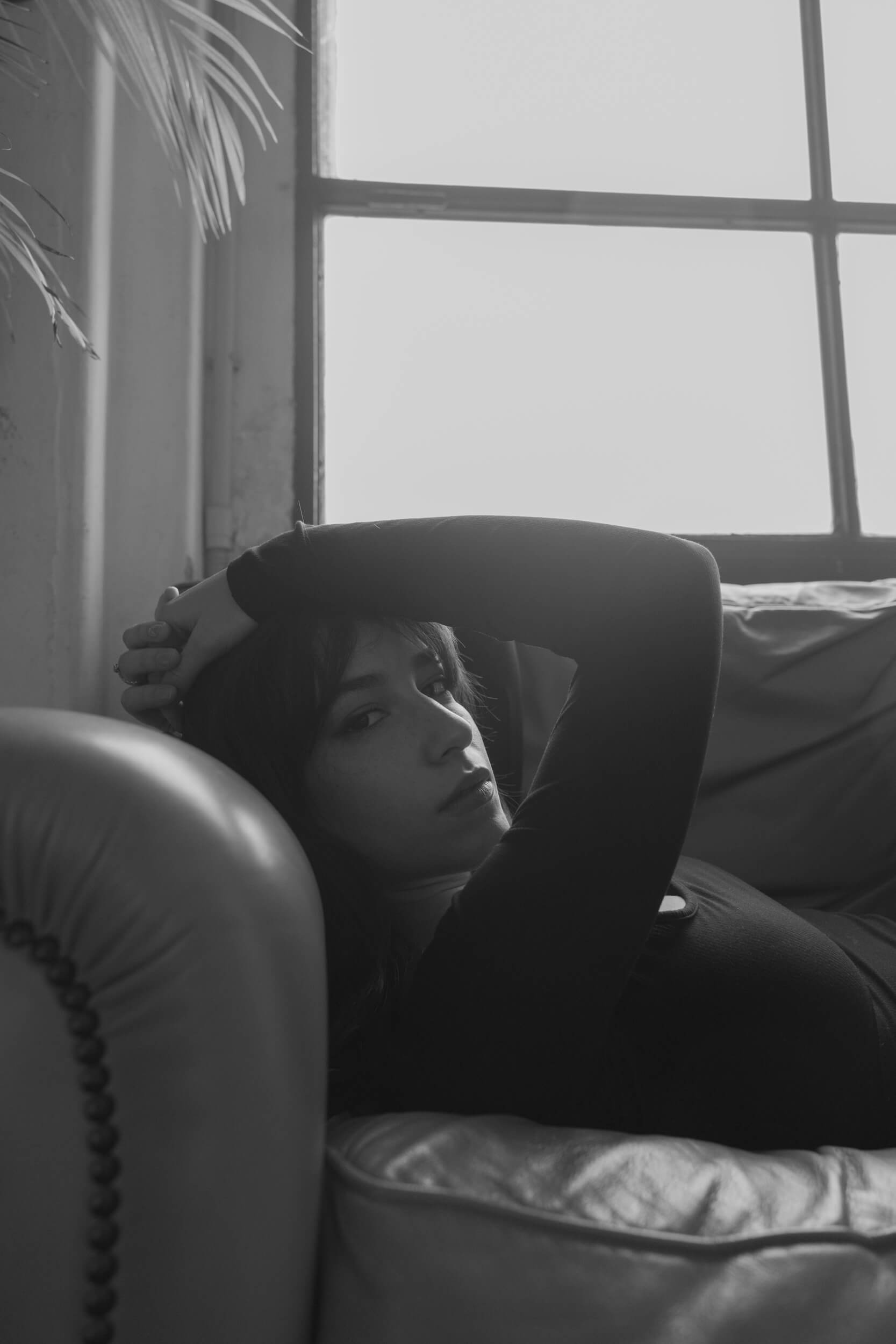
“Laura’s story is mainly about passion”
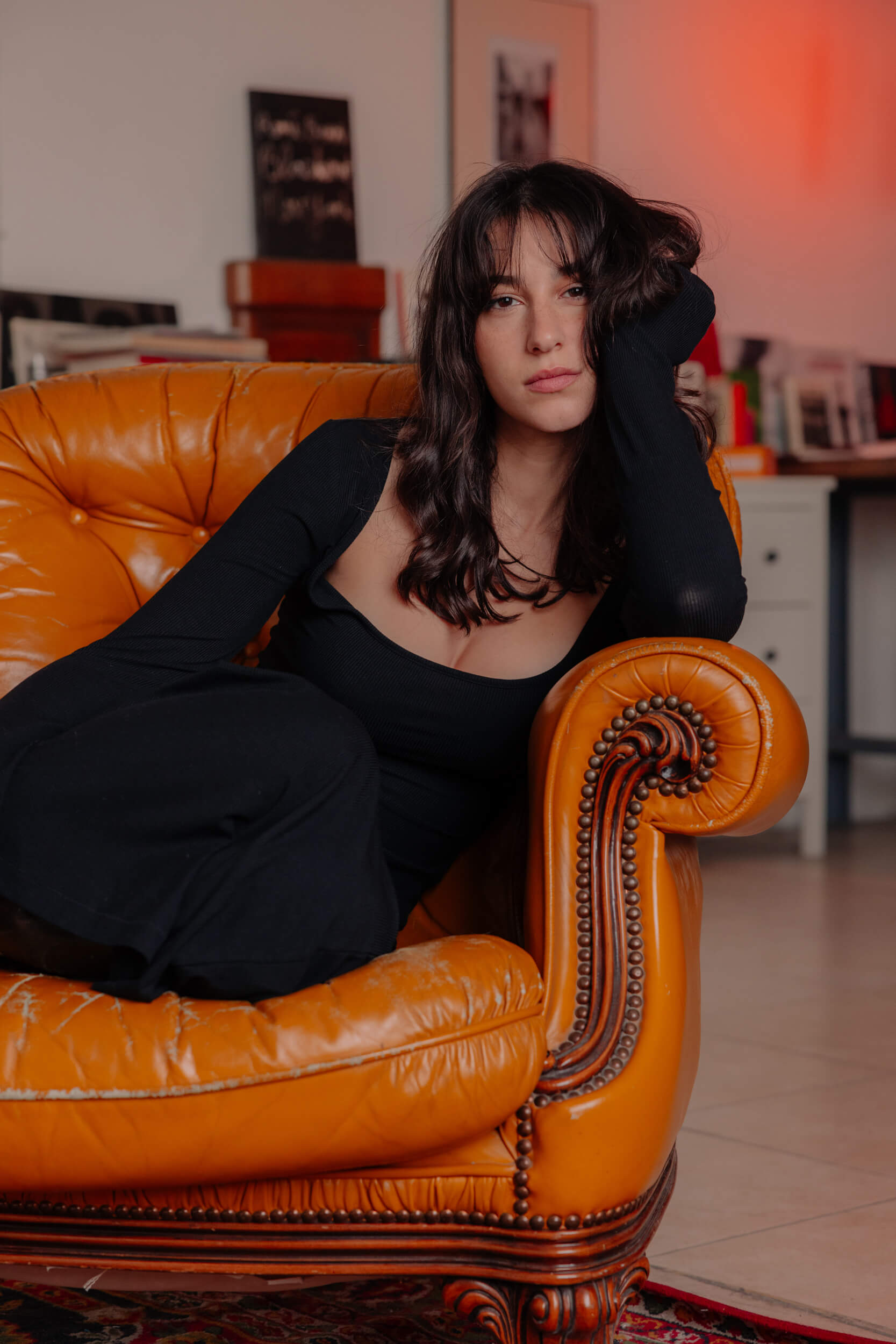
Did you have the opportunity to interact with real Paralympic athletes during preparation and/or filming?
Yes, absolutely. It was a very sought-after aspect for all of us, precisely to try to represent these stories as realistically as possible. I had several opportunities to interact with real Paralympic athletes, including some gatherings organized by FISPES, the Italian Paralympic Committee, where I had the chance to talk to many people. Then, during my athletic preparation, I often tried to train with other athletes who had the same disability as mine, to gather information or “steal” things with my eyes, even very practical things like when they change the prosthetic, how warm-up works, etc. Moreover, the relationship with my stunt double, Alessia Donizzetti, who was a Paralympic athlete, was crucial for me: on set, she was a great support, a source to ask things when I needed it.
I also drew inspiration from Ambra Sabatini, a world champion in Paralympic athletics: she has a different amputation than mine and my character’s, but she was very useful in telling Laura’s story because she has characteristics very similar to her, such as age, determination, and passion.
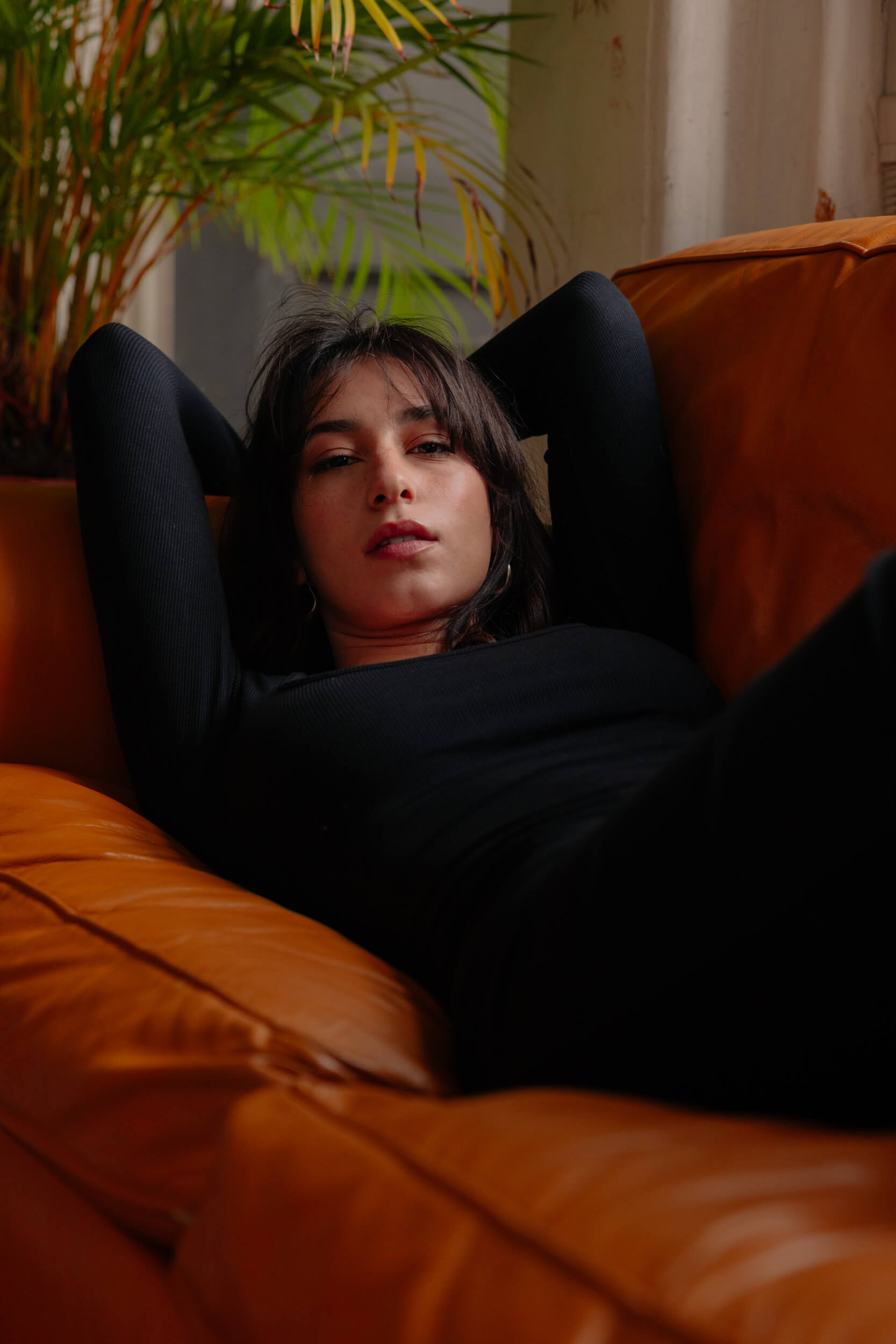
Were there moments on set that helped strengthen the unity of the group represented in the series?
I must say that I felt a certain cohesion among us from the very beginning. On the same day as the script reading, I remember not knowing anyone except Fiorenza D’Antonio, with whom I participated in Miss Italia, but I already felt part of something. Then the magic happened on set: we immediately formed a team, and it certainly helped that we had many trips; we spent weeks in hotels together 24/7. With Raoul Bova, it was a bit different because there was some awe and “reverence” towards him on our part. At first, it was complicated, I was afraid of being too familiar, but then we quickly developed a good relationship. One evening, in particular, he invited us to dinner at his home, and the next day, you could feel the birth of a very strong bond, a wonderful team. We always supported each other a lot, and this made a difference: I think it’s noticeable enough, especially in a project where the team is the protagonist.
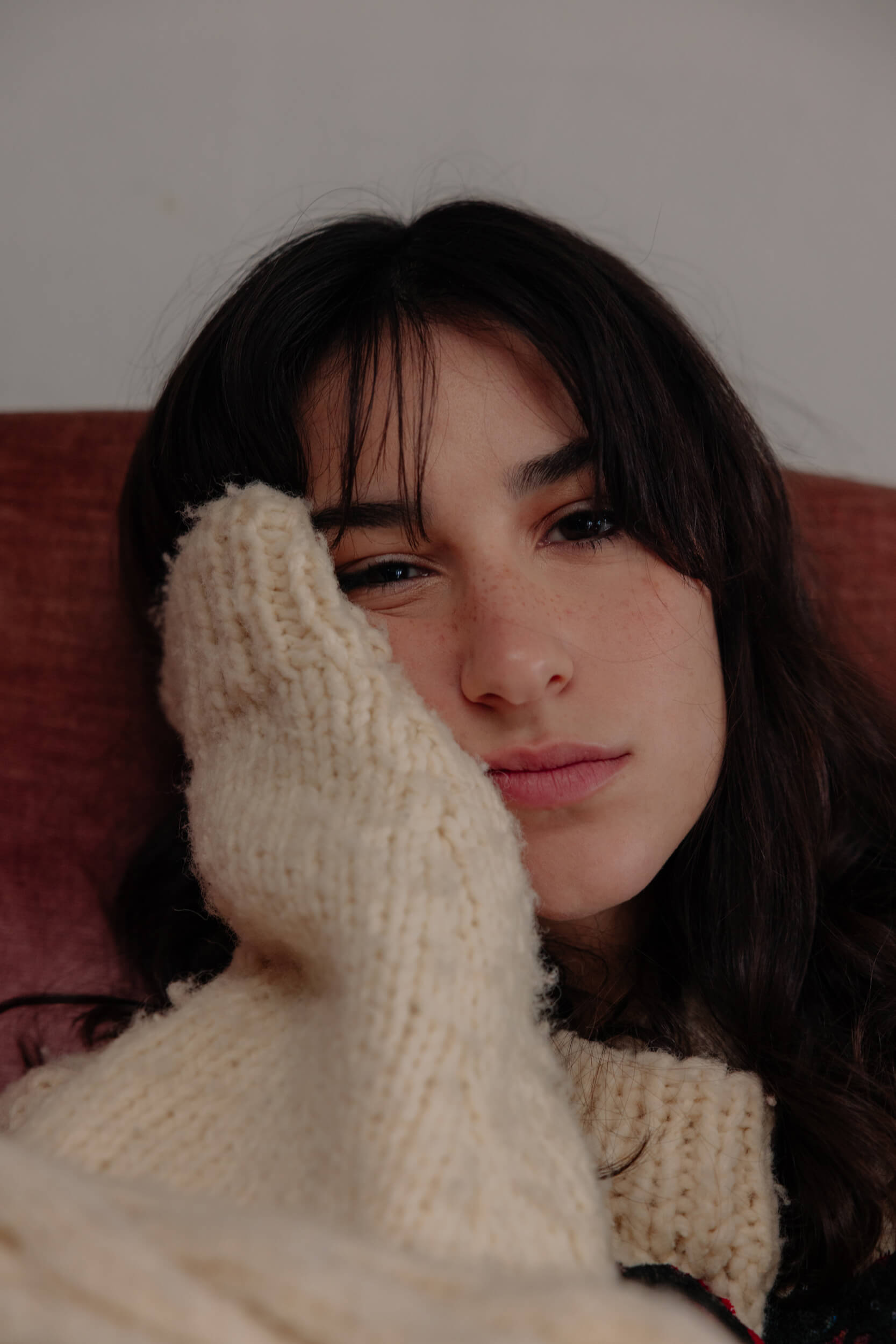
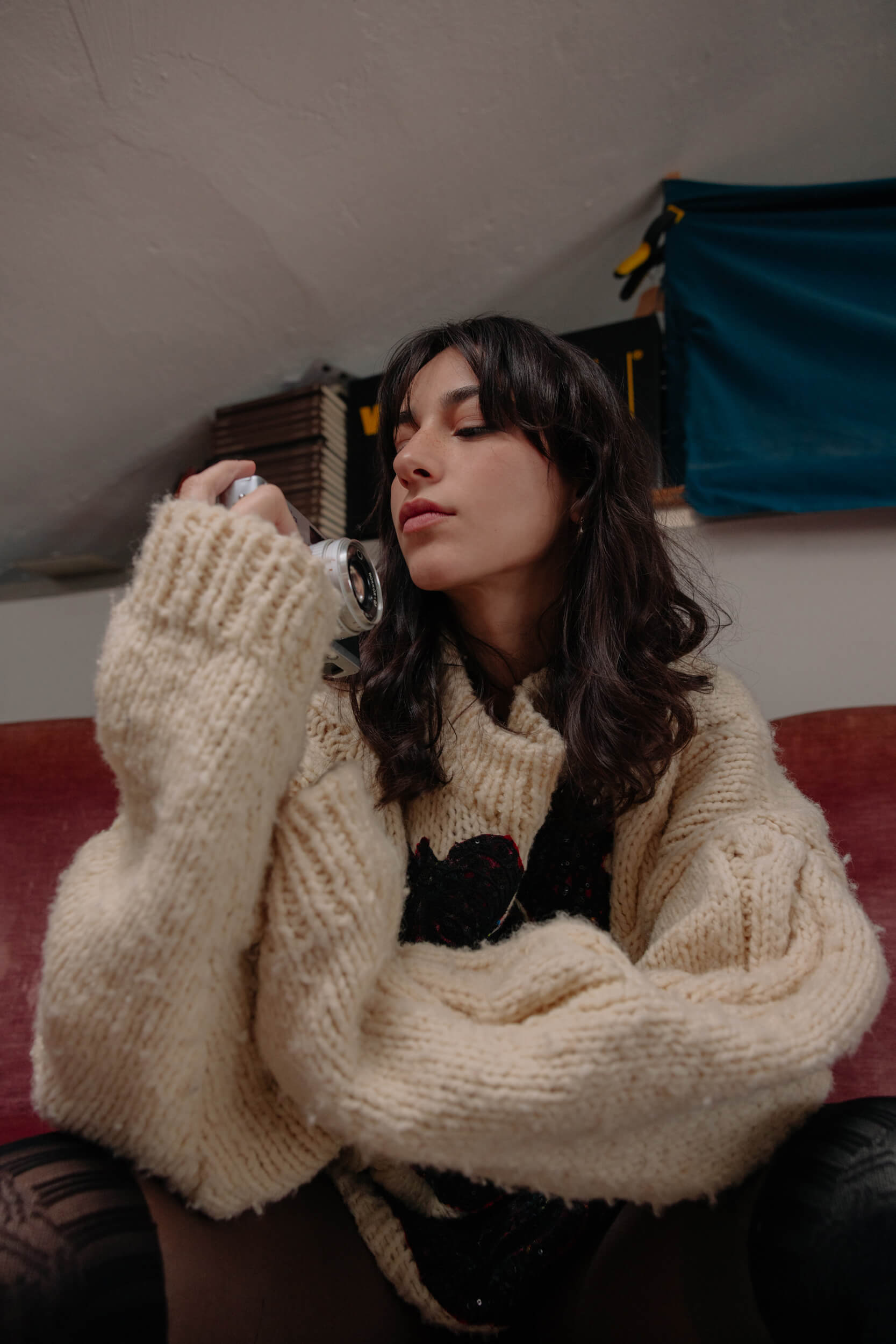
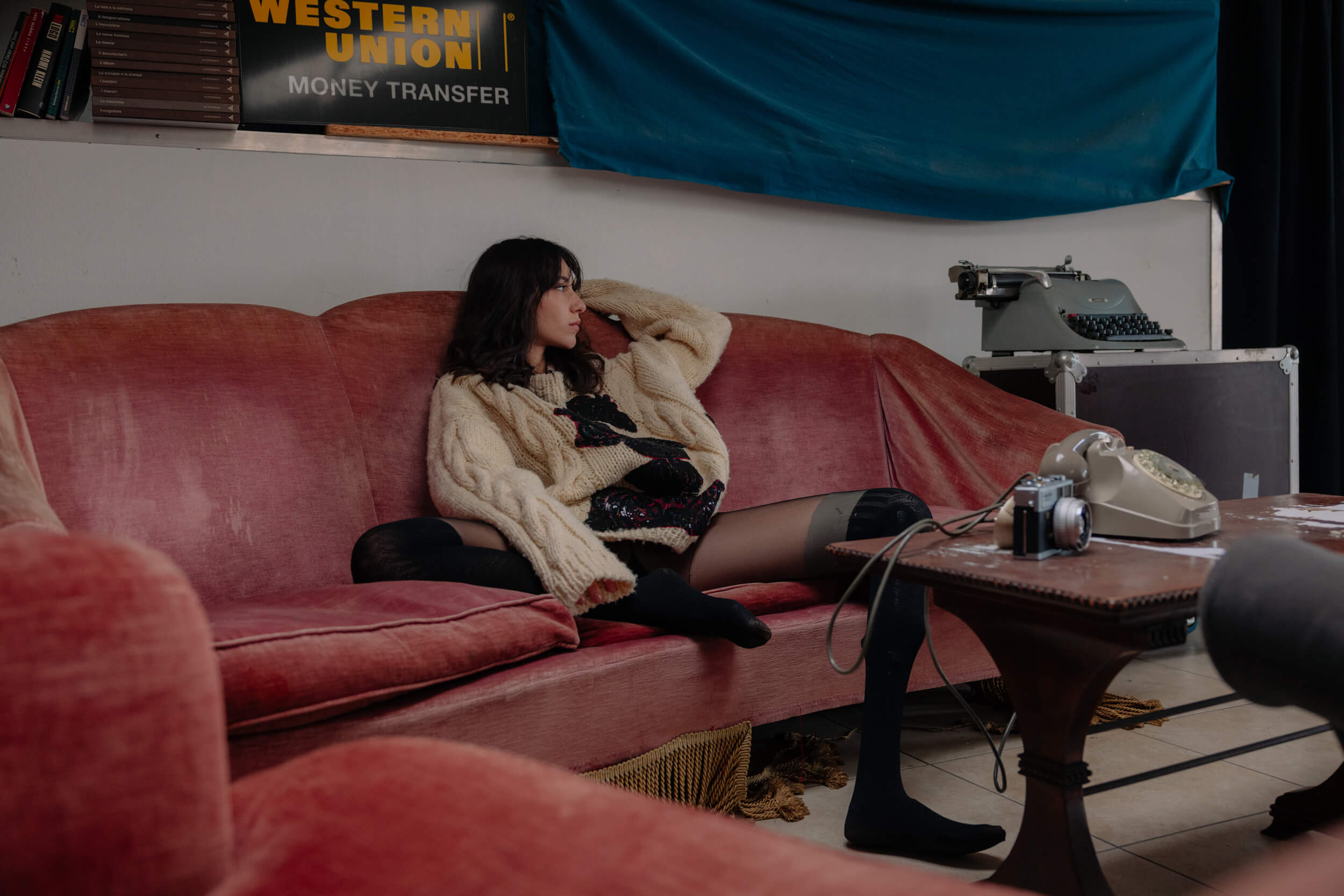
What is your view on the role of television in promoting awareness and diversity through stories like “I Fantastici 5”?
In my opinion, television and the media, in general, have a great responsibility because they create stereotypes, ideas, and thoughts, and representing them also influences the public’s opinion one way or another. I am very happy that this project exists because, in my opinion, it will bring about a change. The mere fact that the decision was made to tell the story of the parasports world is very important, just as it is important to represent disability, which has been so little represented until now and has consequences within society. Also, the mere fact of having actors or actresses with disabilities play characters with disabilities may lead people with disabilities who watch the series to think that even they can become actors if they want. I hope this series opens doors for anyone who wants to do this job and creates a much larger pool of actors with disabilities.
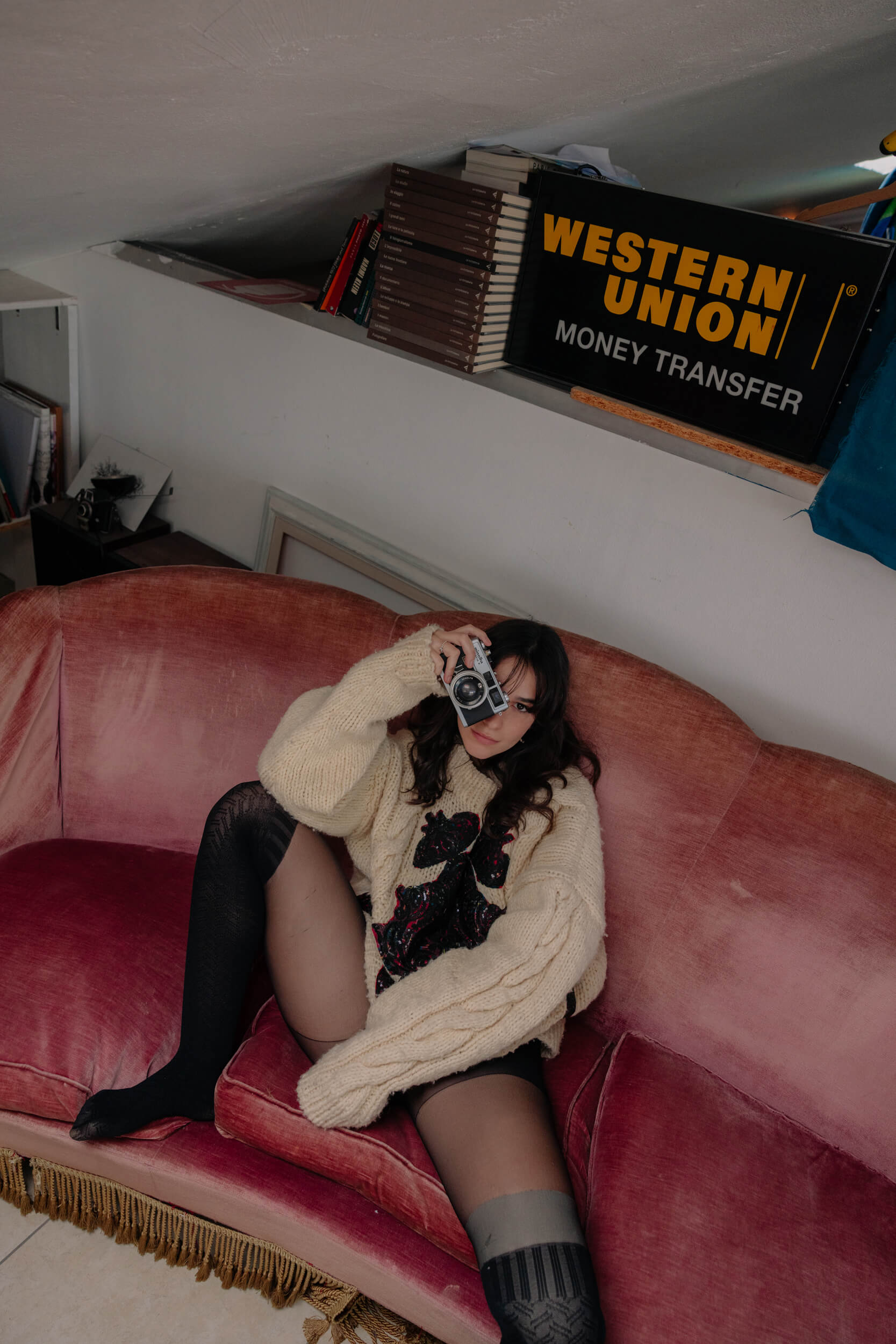
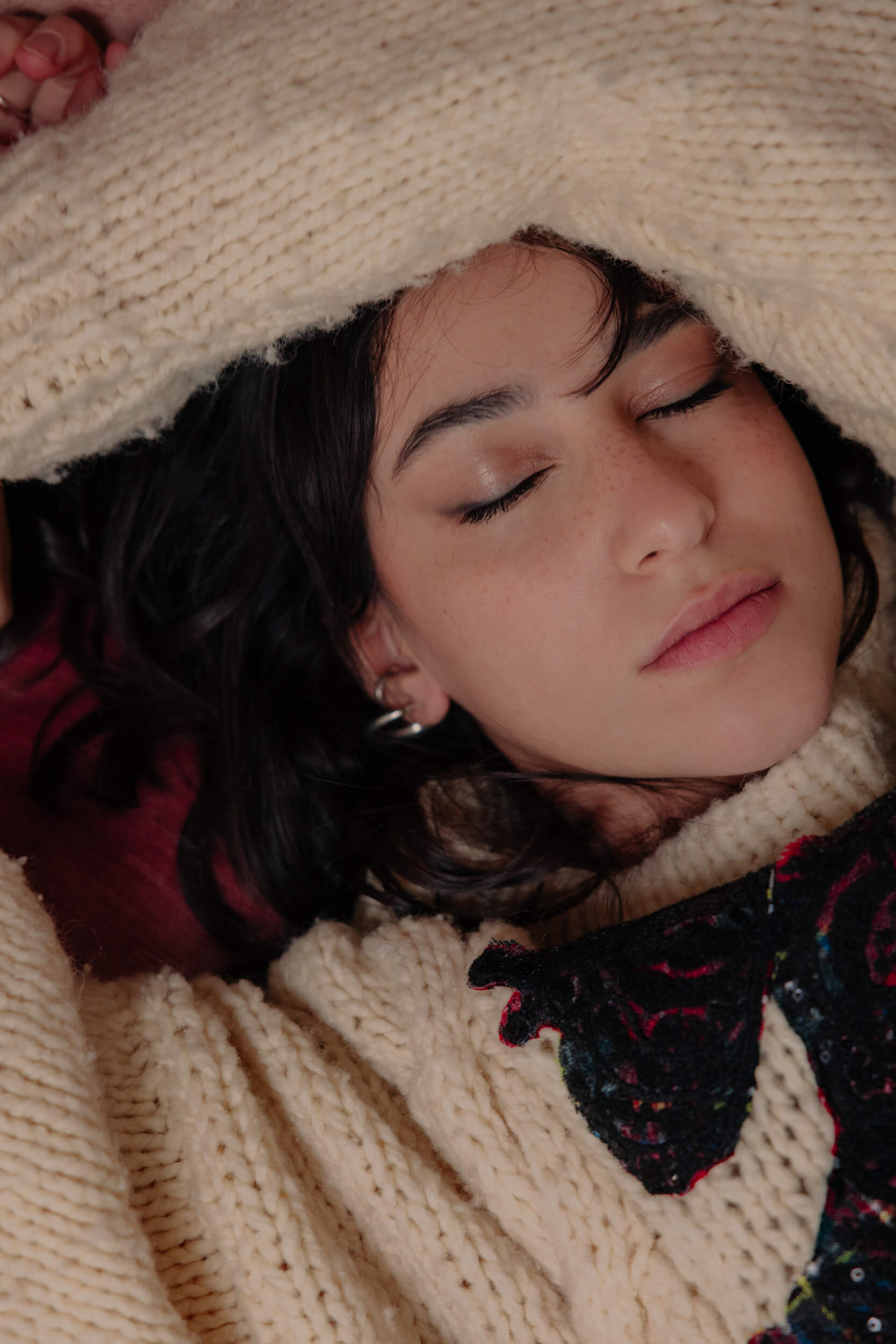
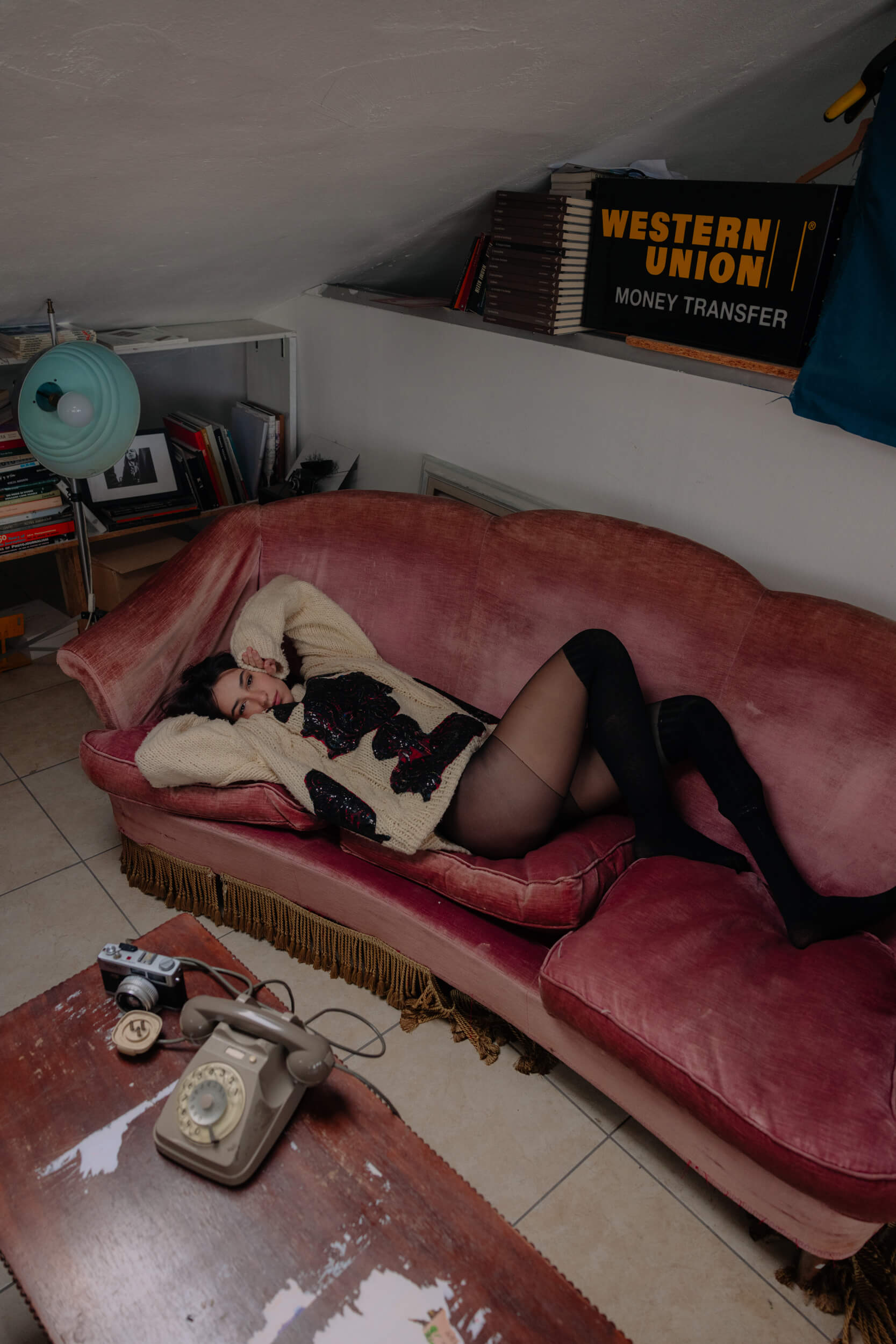
“…it is important to represent disability, which has been so little represented until now and has consequences within society.”
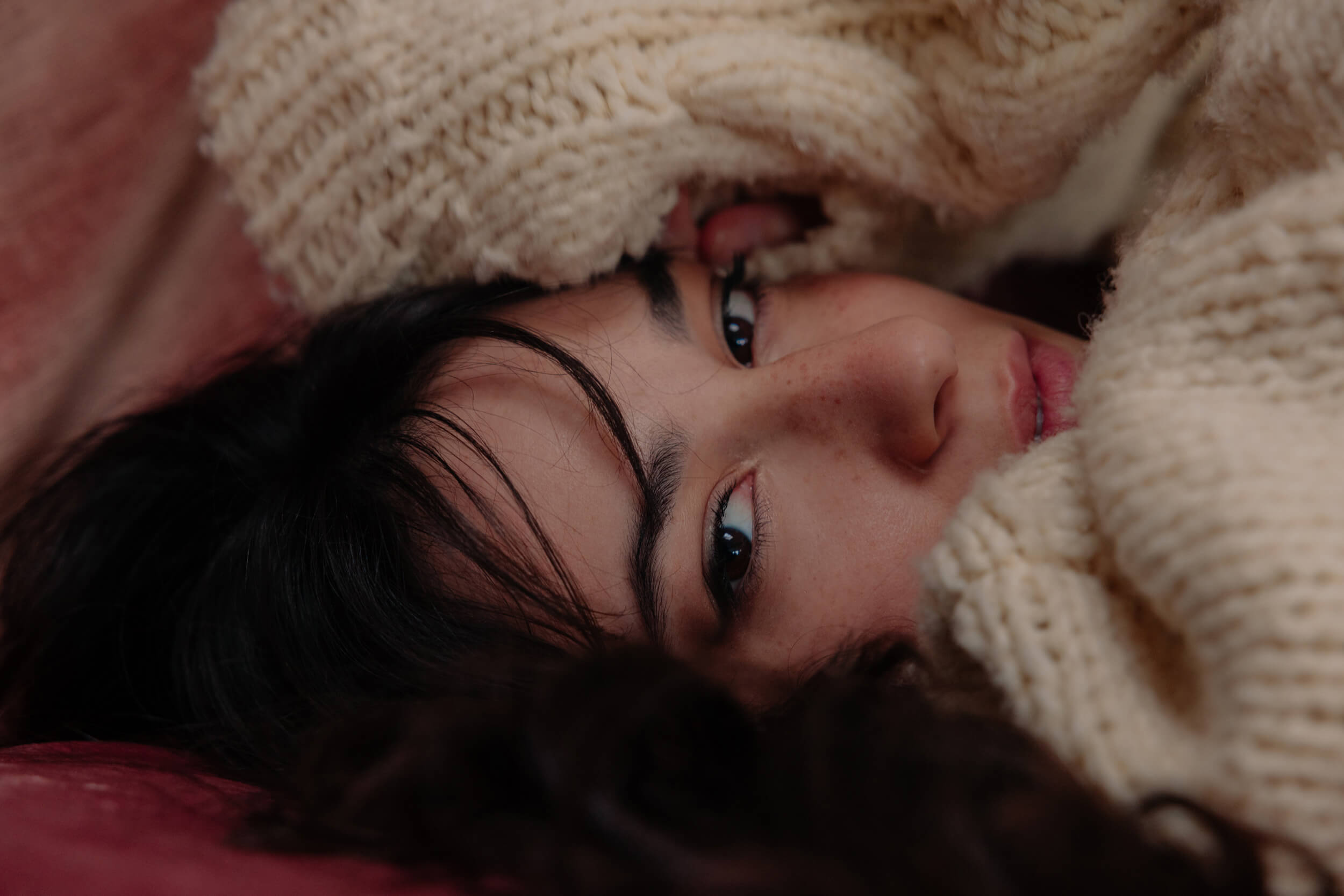
What is the last thing you discovered about yourself through your work? After this experience, for example, have you gained new awareness or understood something new about yourself?
Professionally, this series has allowed me to experience many new things, to put theory into practice: I learned to search for and find specific emotions within myself for more emotionally challenging scenes, of which I was somewhat afraid. I remember the scene of the accident, which was something that made me anxious because it is an experience I lived through personally and certainly touches a slightly sensitive nerve. It’s been ten years, it’s something I’ve processed and it no longer hurts, but bringing it back to memory in that way was difficult.
What I learned, and what I carry with me, is to bring up emotions without allowing them to destroy you, knowing how to manage them; a wonderful skill to acquire, even for everyday life, because we are often overwhelmed by negative emotions that nullify us, and being able to limit them is a beautiful exercise in empathy, in my opinion.
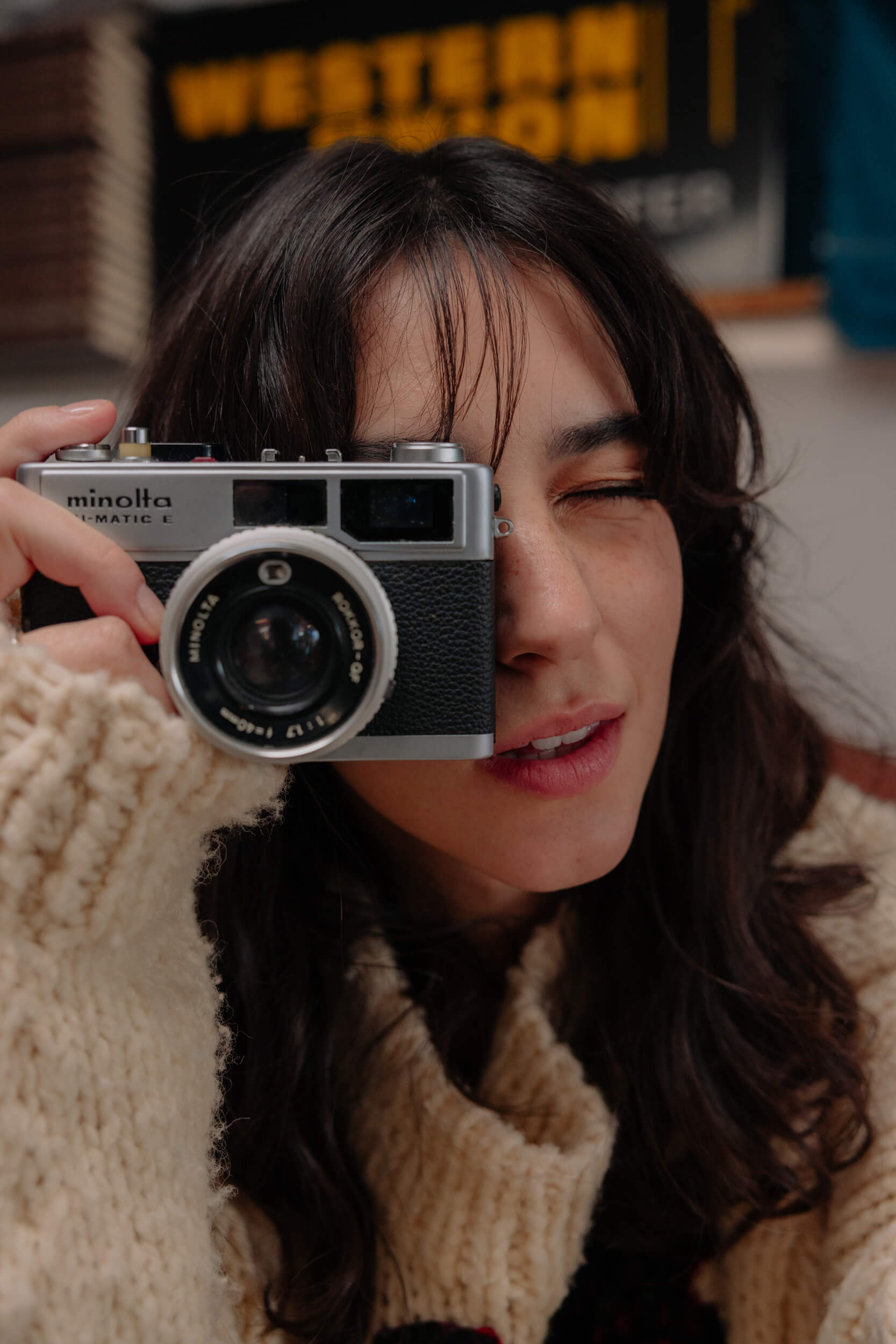
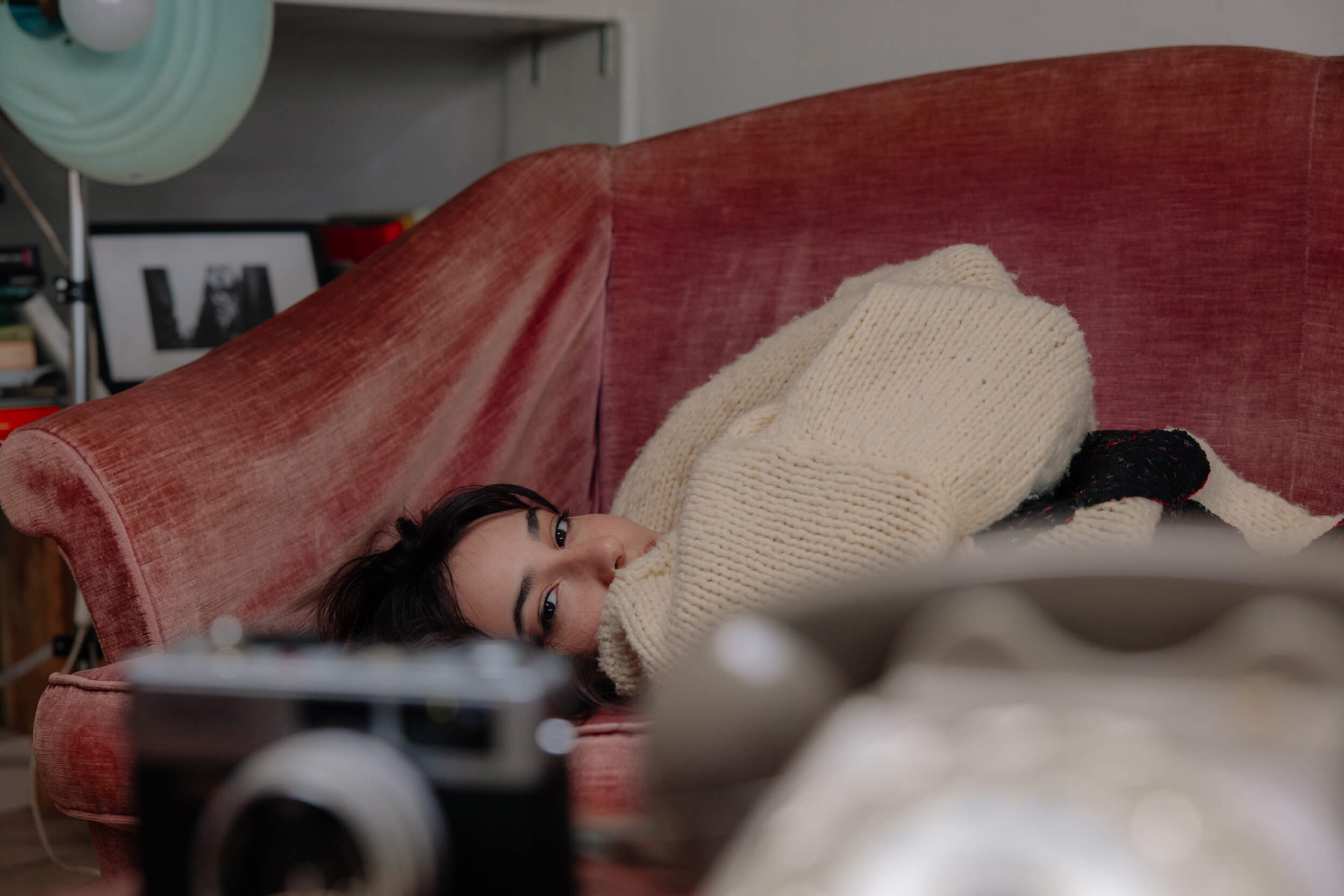
Do you have new projects or genres in mind that you would like to explore in the future of your career?
Yes, I have many ideas, which somewhat clash with the reality of the situation, i.e., the few roles available for someone with a disability. But what I think and hope to do one day is to play a character who, from the script, does not have a disability. If that happened, we would have made a huge leap forward. I would love to shoot a period film because I am very passionate about history; I like reliving ancient things, and what better way than by interpreting them surrounded by a realistic set? At the same time, I also love fantasy… So, who knows?
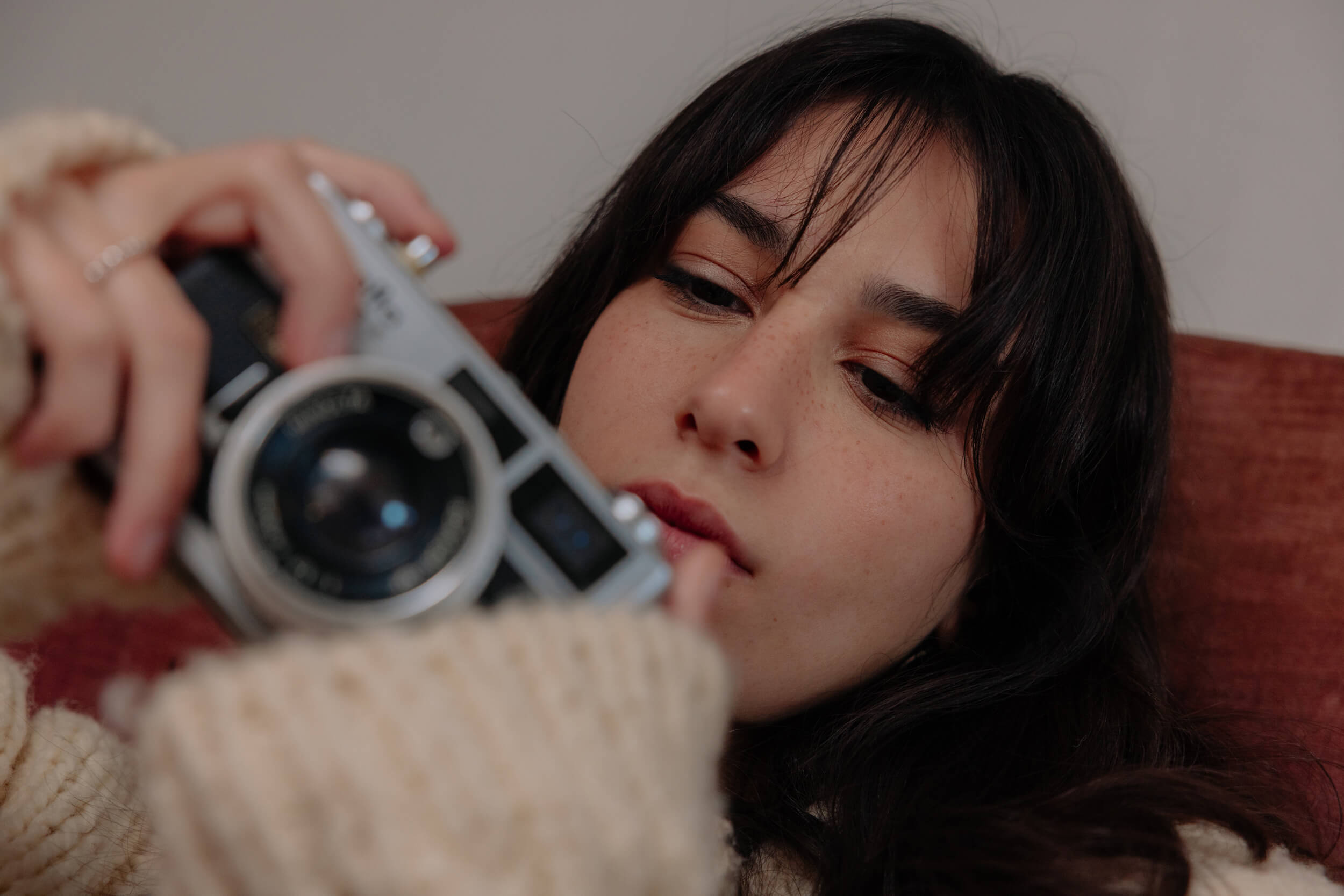
“A HUGE LEAP FORWARD”
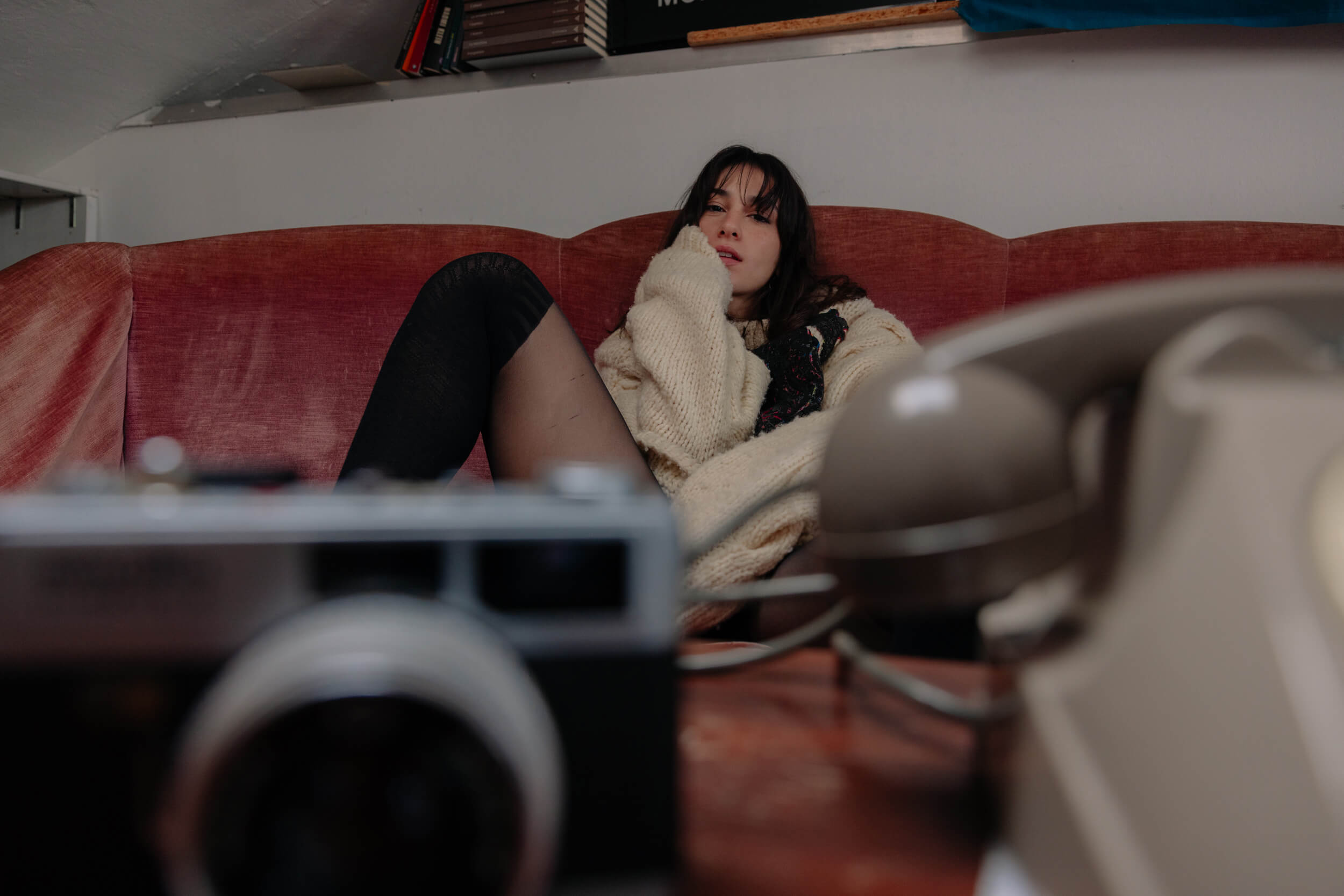
An epic fail on set?
It happened on the set of “I Fantastici 5”. In the first week on set, I had to shoot a scene with Raoul, where I was driving the car. At the “action” command, I had to move the car forward as if it were already in motion, and then open the door and get out with Raoul. However, at the “action” command, I couldn’t put the car in gear, and after a long time, when I managed to put it in gear and start, I had the handbrake engaged… [laughs]. In short, I managed to move this car, a brand new car, and then I opened the door as scripted and hit a wall full on. Everything happened in three minutes, widespread panic! I remember Raoul telling me, “Chiara, you have to put it in first, and then go forward…,” but I couldn’t do it; by now, I was in a panic. And then there was also the door against the wall… [laughs]. It had just gotten worse!
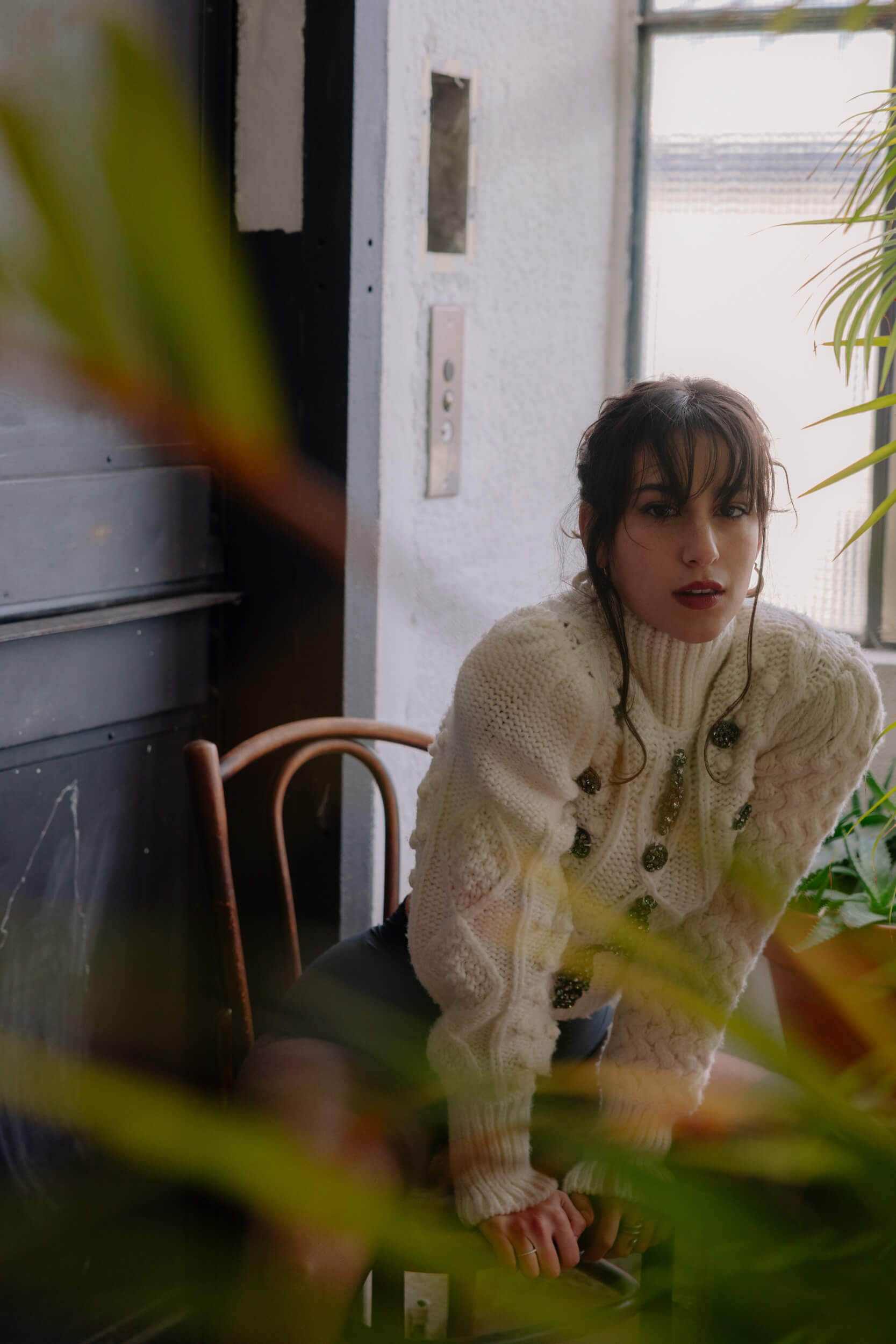
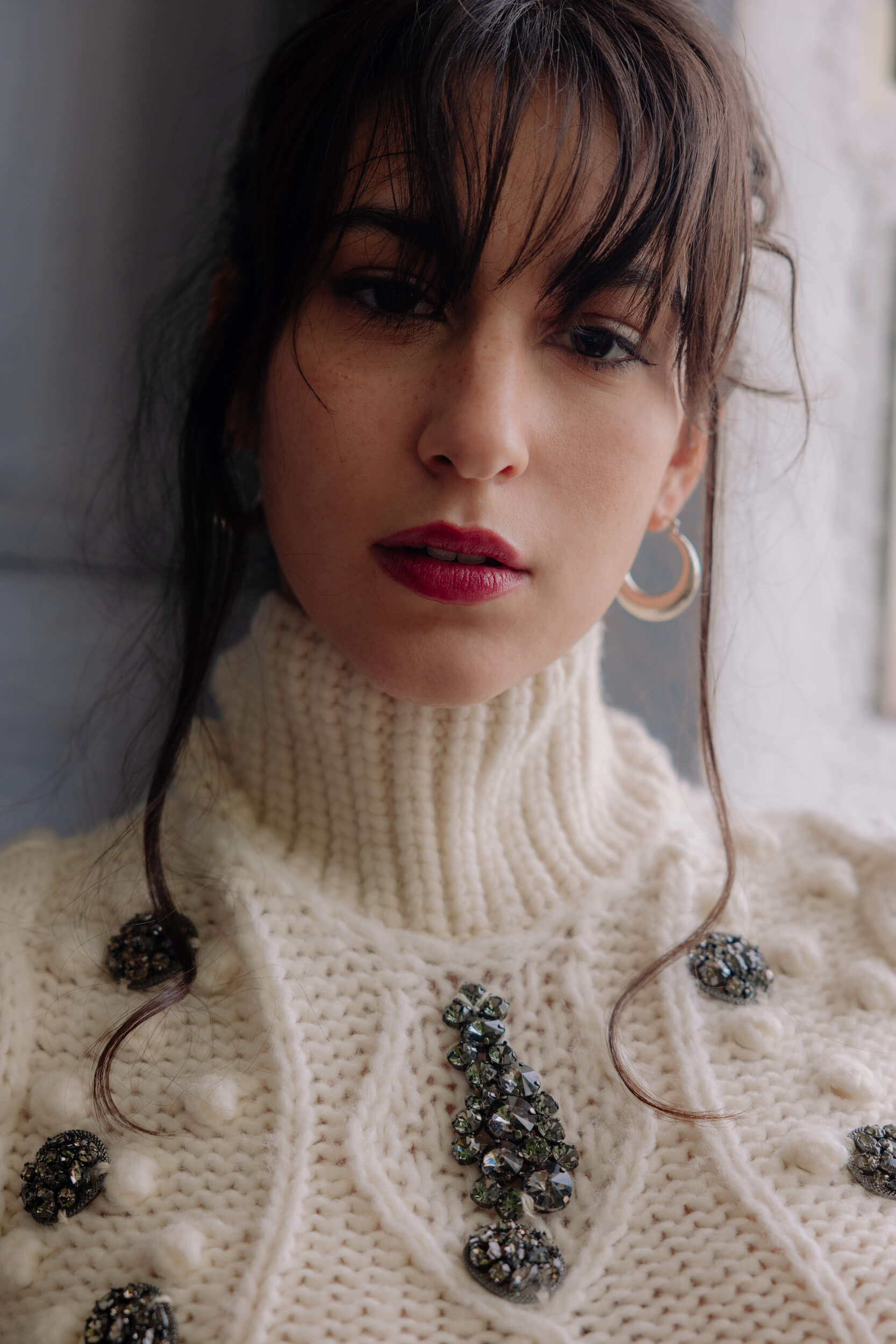
Your must-have on set?
I always have the script with me, on which I almost always write notes about what precedes each scene because, obviously, not filming in chronological order, it is important to always know what happens before each scene, in terms of events but also emotions related to the character. Another thing I always do is record myself with my phone when I rehearse a scene so that I can watch it later.
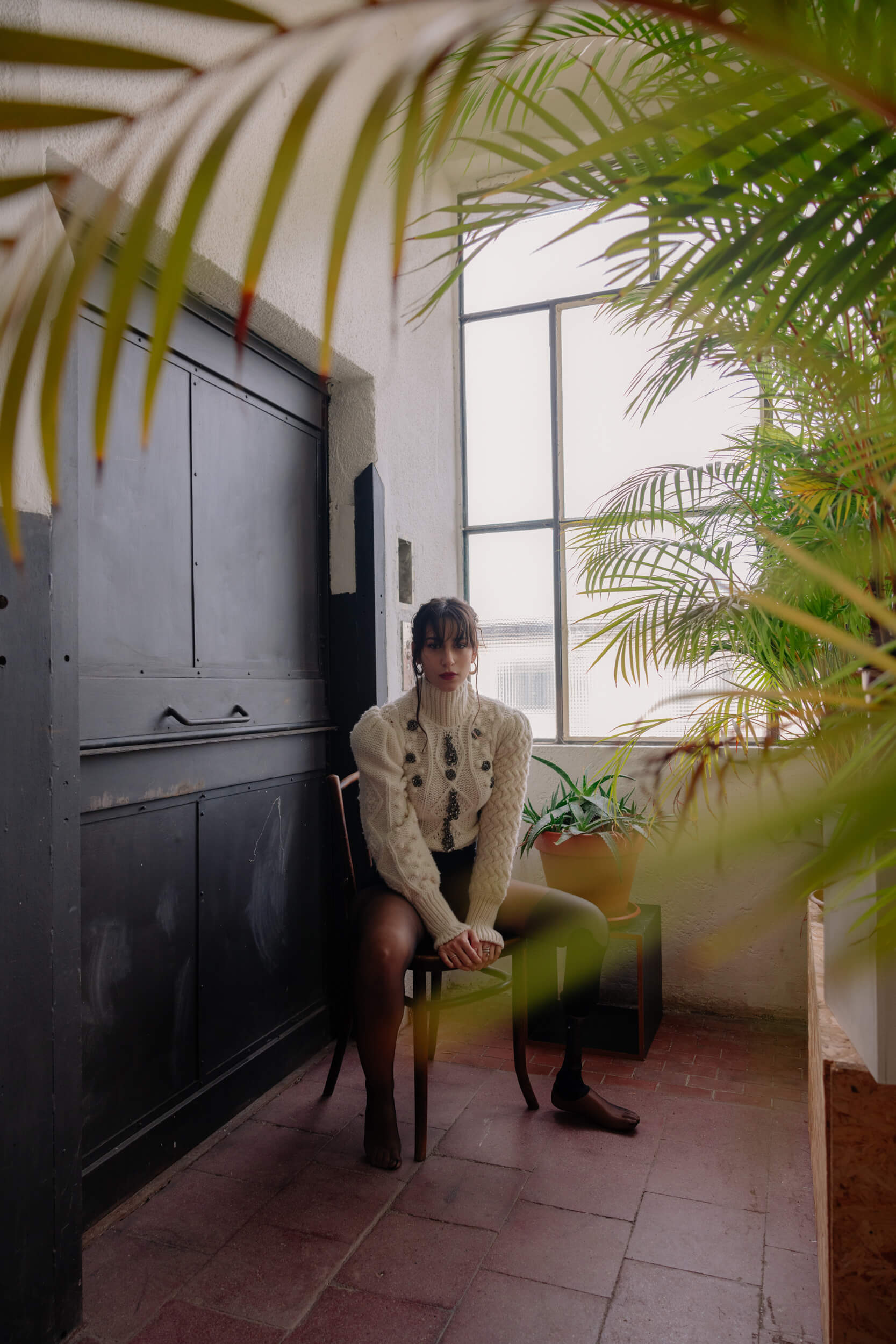
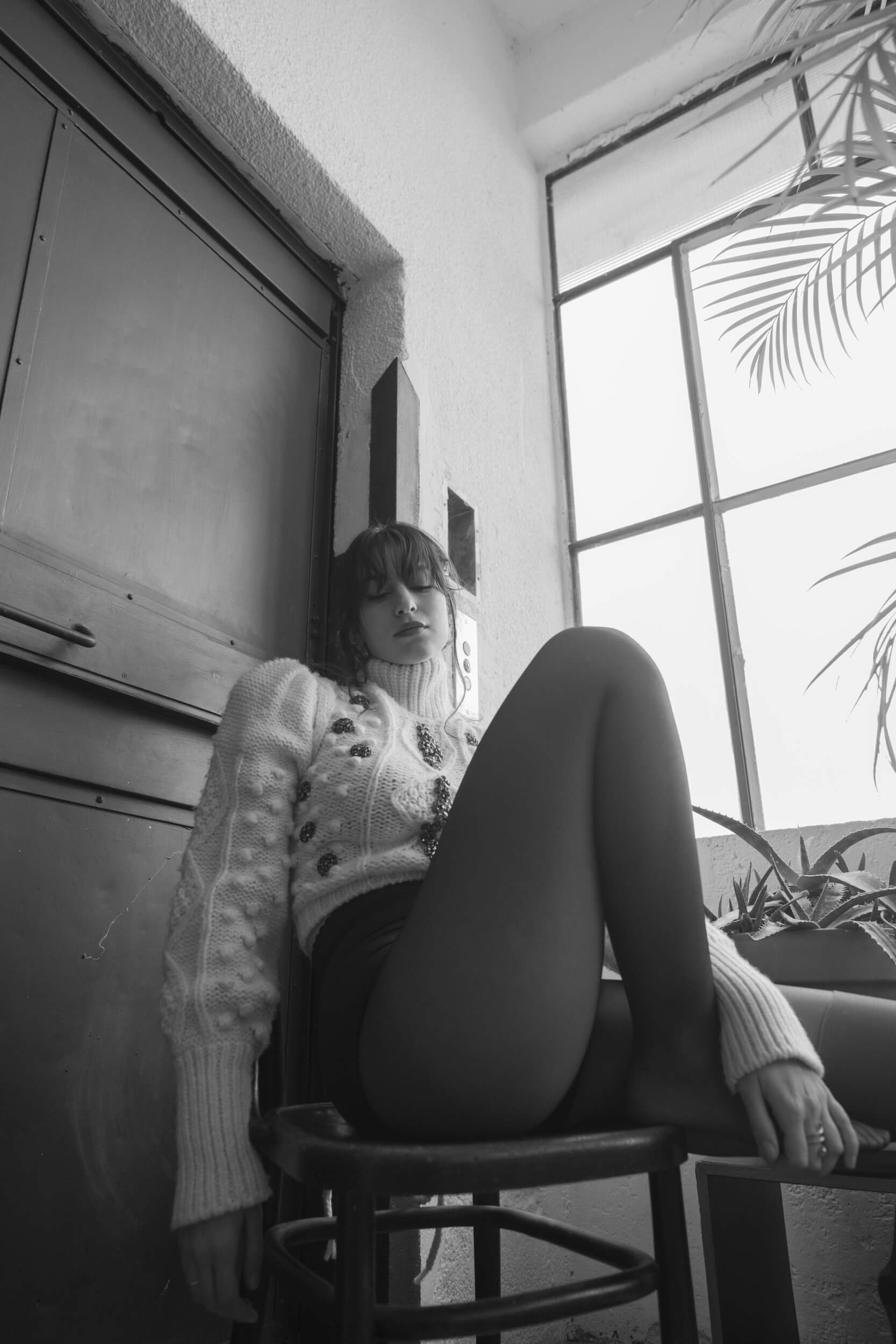
Do you have a routine or a specific activity that you do when you need to “center” yourself, to find yourself again?
Yes, I skateboard and surf.
In particular, when there are waves, the act of getting into the water and reconnecting with nature, challenging myself, puts me back in the world. Obviously, in Italy, having waves is not common, so it’s not an activity that is part of my routine, in fact, I also go skateboarding, which often clears my head.
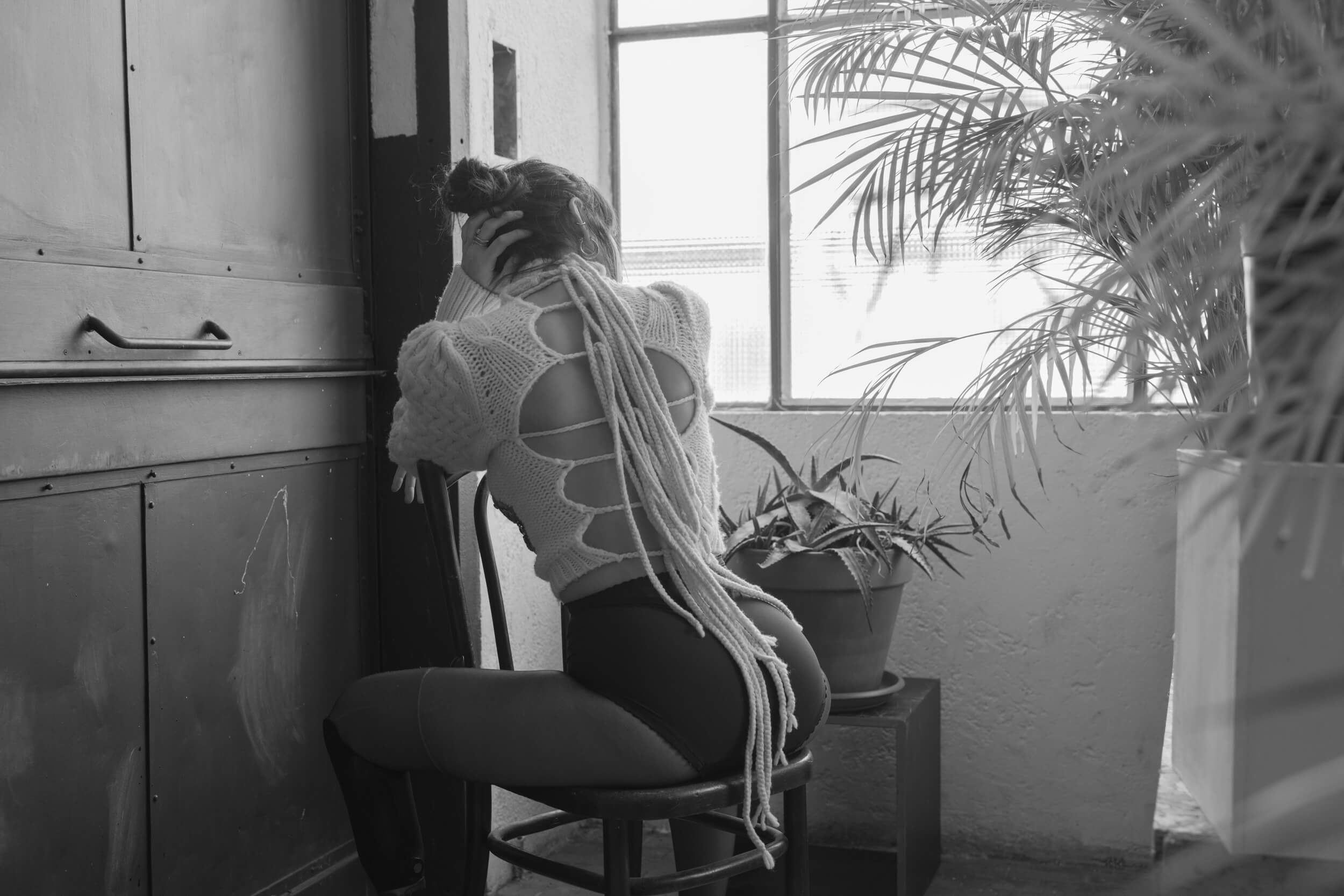
What makes you feel the safest?
Right now, I am in Tarquinia, which is my hometown, where my family is: something that makes me feel safe is knowing that I have my loved ones nearby, whether it’s my family, my boyfriend, or my friends. Knowing that I am in a place where I am surrounded by affection and love is something that makes me feel very safe.
At the same time, I also seek input from the outside: I like to do things outside my comfort zone because those are the things that make you grow by challenging yourself. However, knowing that you will return to a place where you will feel safe and at home is valuable, without ever getting too comfortable, anyway.
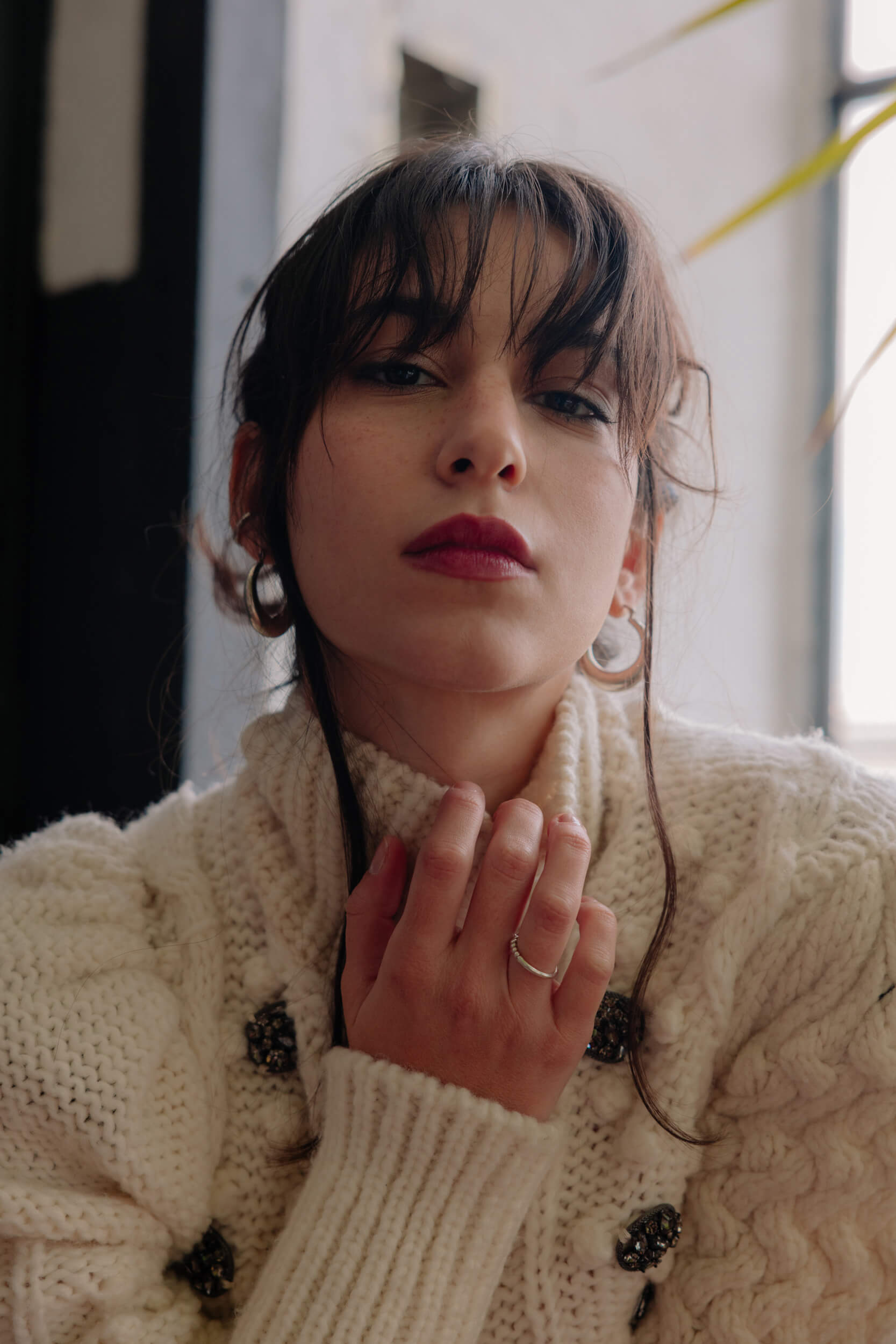
“Knowing that I am in a place where I am surrounded by affection and love is something that makes me feel very safe.”
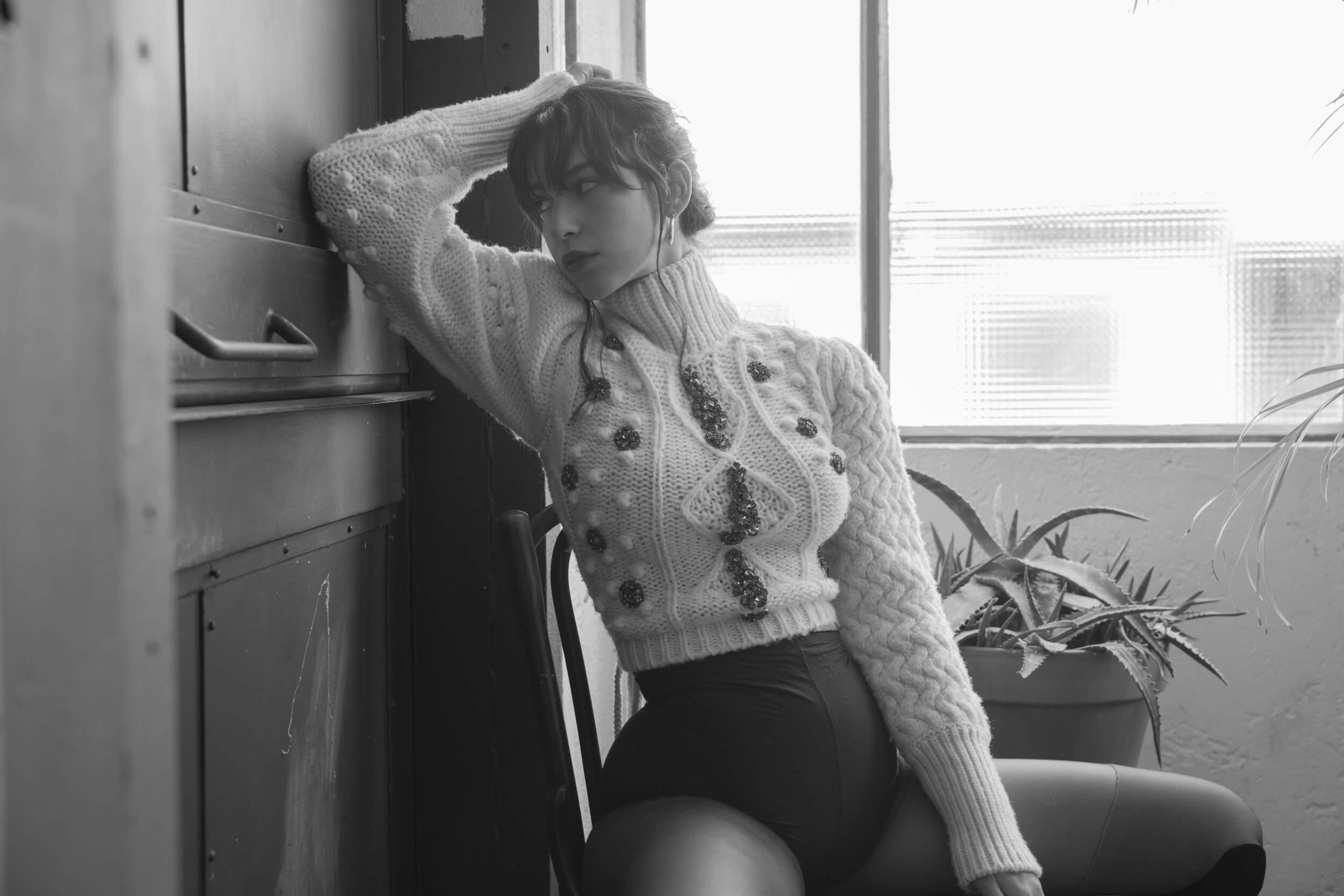
What has been your greatest act of courage?
When I shot the TV show “Prisma”, which was my very first acting experience, apart from a few years of theater I had done before. I loved the project, it was something I had always dreamed of doing, so I couldn’t wait to start, and it gave me a lot of satisfaction. So began my journey into this world. Doing something I had never done before, finding myself in a world where I had never been, made me feel “not up to it,” a sensation that is beautiful on the one hand and on the other hand very ugly because then it leads you to be insecure, to be afraid of making mistakes. However, throwing myself into something that scared me, I recognize that it was a great act of courage on my part, and the fact of not feeling up to it led me to work very hard, to prepare twice as much.
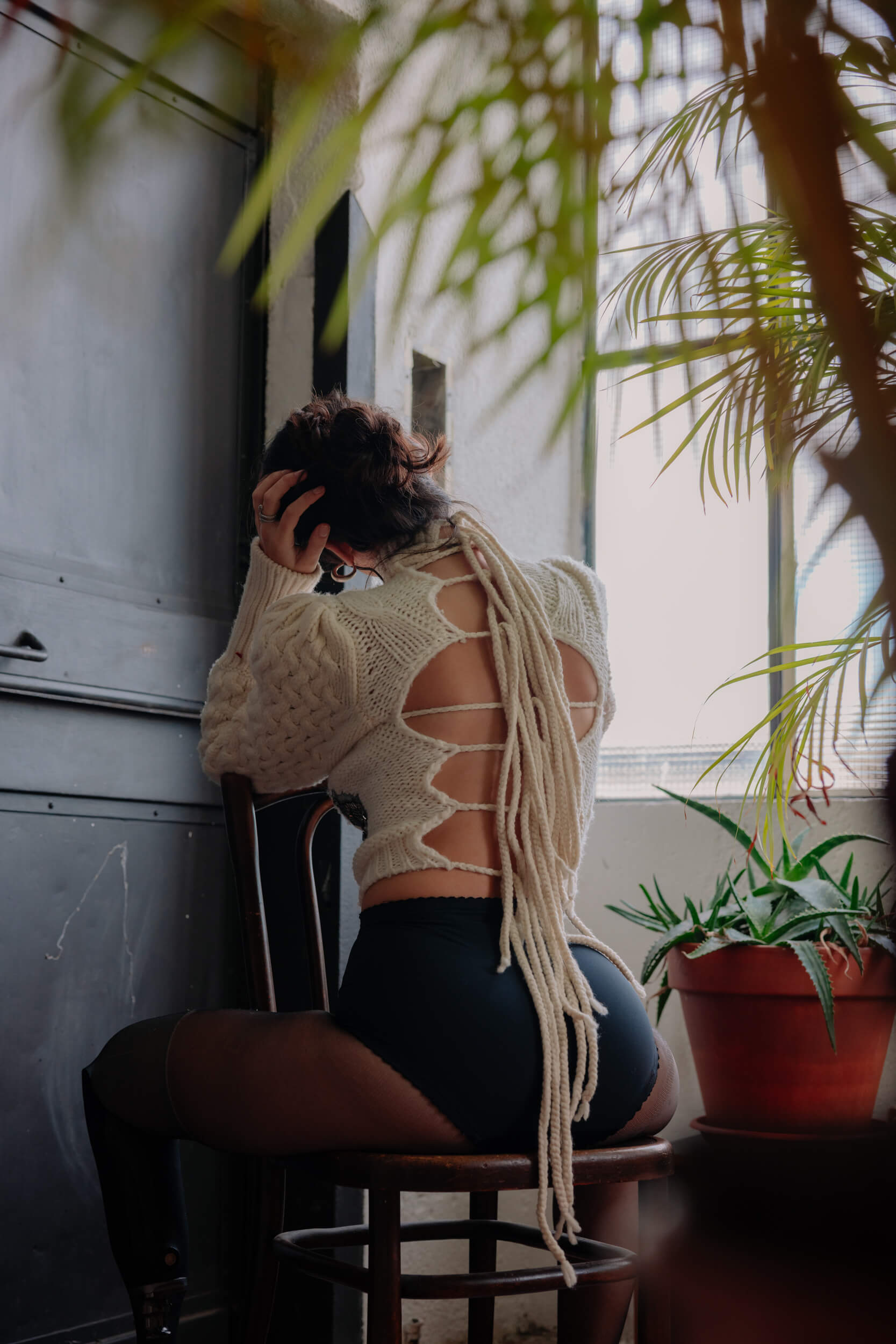
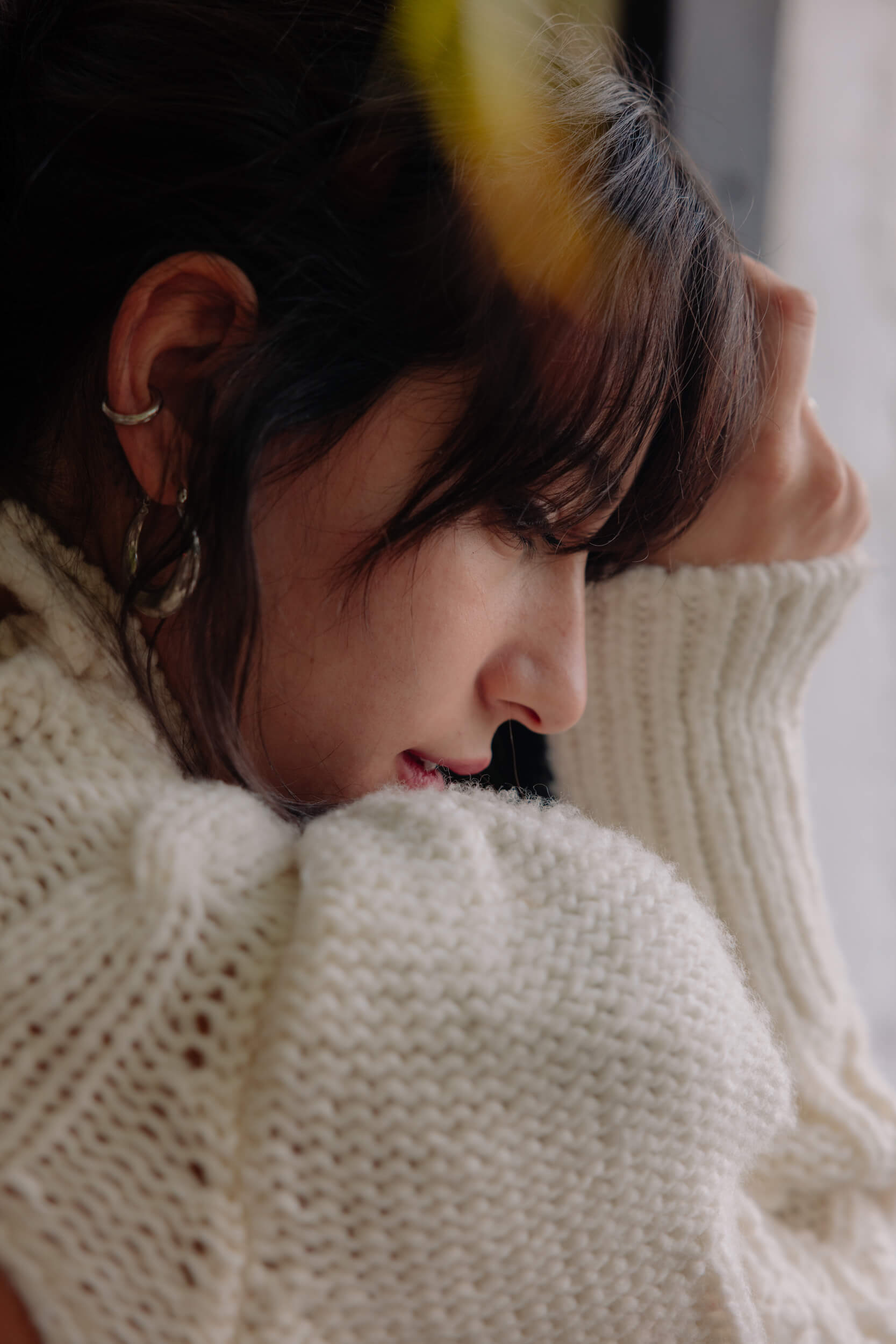
What are you afraid of?
The answer might be a bit sad because my biggest fear is death. Not exactly my death, but the concept of death, the awareness that there is an end.
I am not a believer I am skeptical about everything related to the afterlife: in my personal view, when you die, everything ends. The idea that all this may end one day is something that scares me a lot. Moreover, I believe that death is a concept to be normalized because there is no life without death; it is part of life and is something that none of us can escape, we all experience it and will experience it. However, despite this awareness, none of us can fully normalize death.
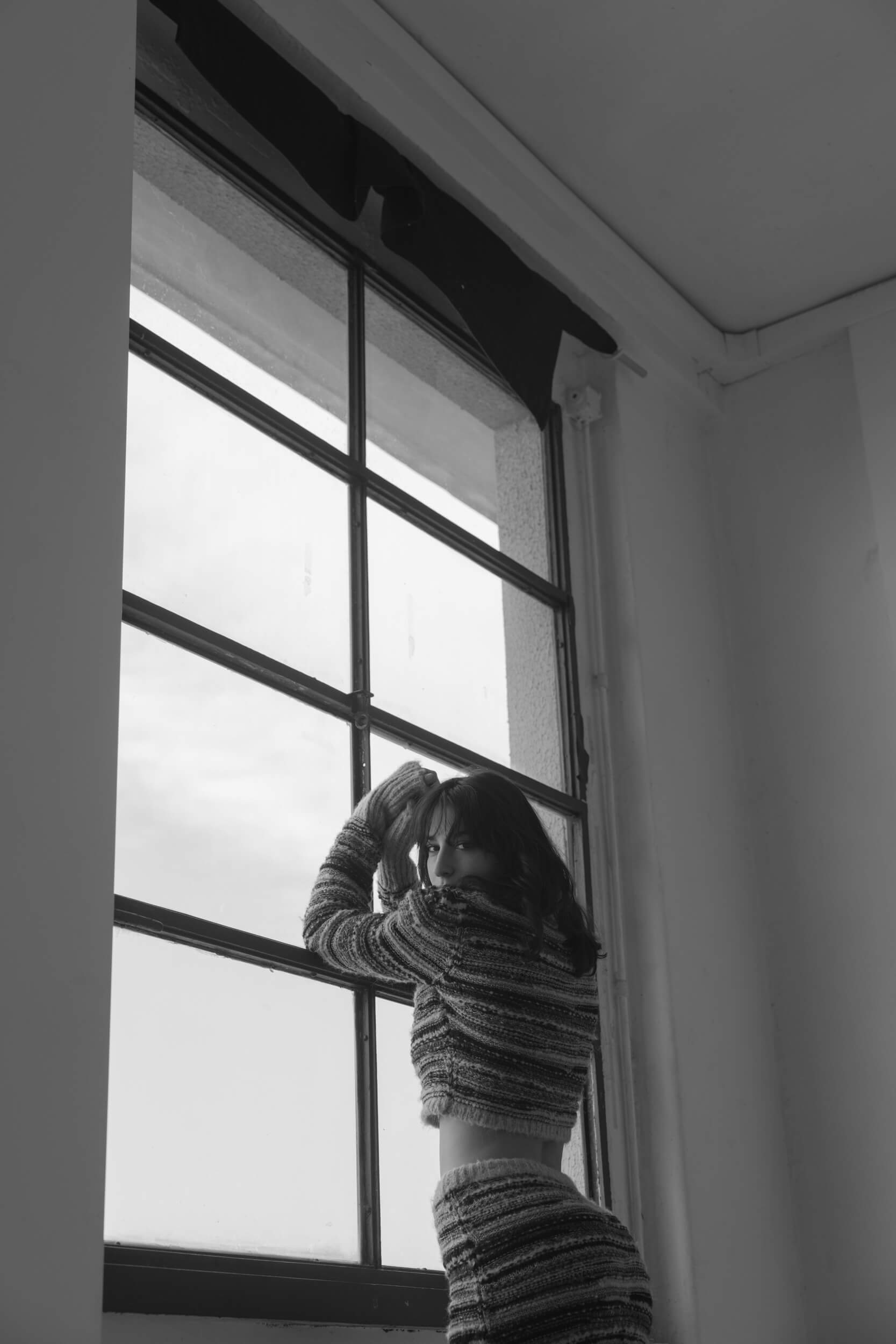
What gives you hope, instead?
Life.
The thought that life goes on despite difficulties, despite obstacles that seem insurmountable. The instinct of attachment to life, intrinsic in human nature, and especially in animal nature, is something that gives me hope because I think that at any moment, even the worst, we all seek life. I often think about it when I’m in the car: “What if someone deliberately crashes into me now?” On the road, we are all there paying attention to the signs and driving cautiously primarily because we all want to stay alive and hold onto our lives tightly. It gives me hope to think that at any moment, in any situation, life is always stronger than difficulty. Perhaps I realized this, especially after the accident, in which I was effectively a step away from death: I remember how viscerally I clung to life. All the difficulties I experienced afterward allowed me to become aware of the strength of life, in every sense.
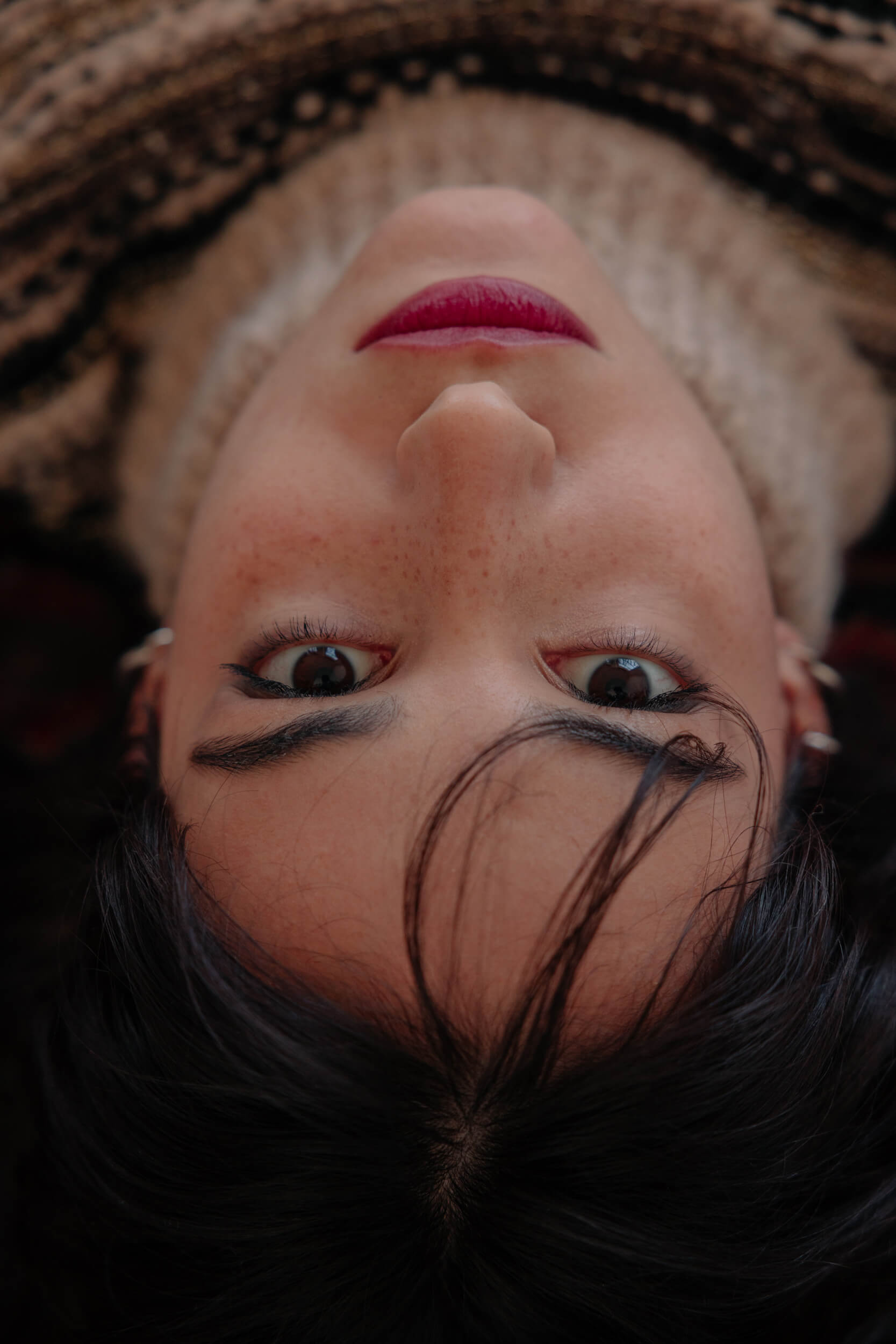
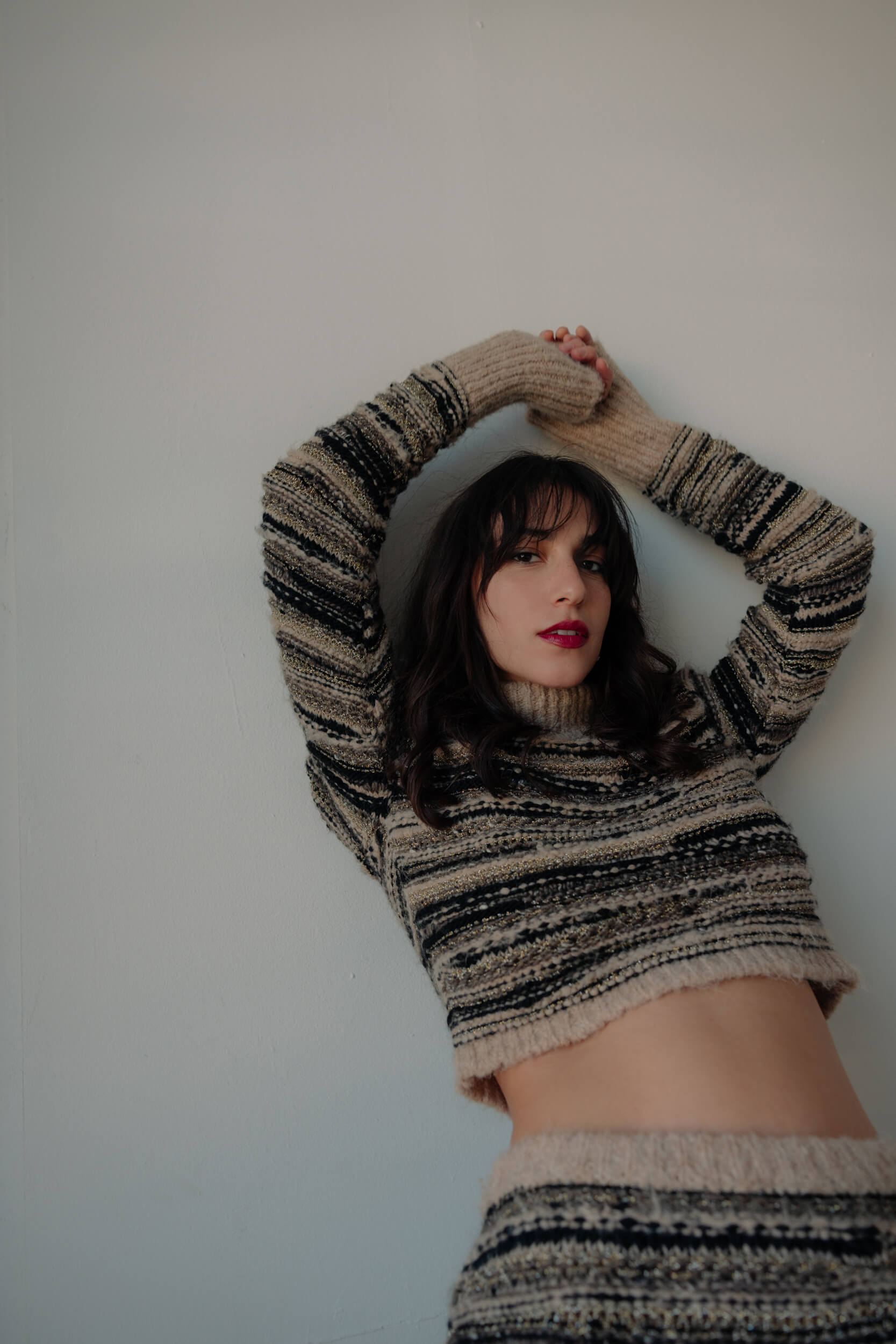
“It gives me hope to think that at any moment, in any situation, life is always stronger than difficulty.”
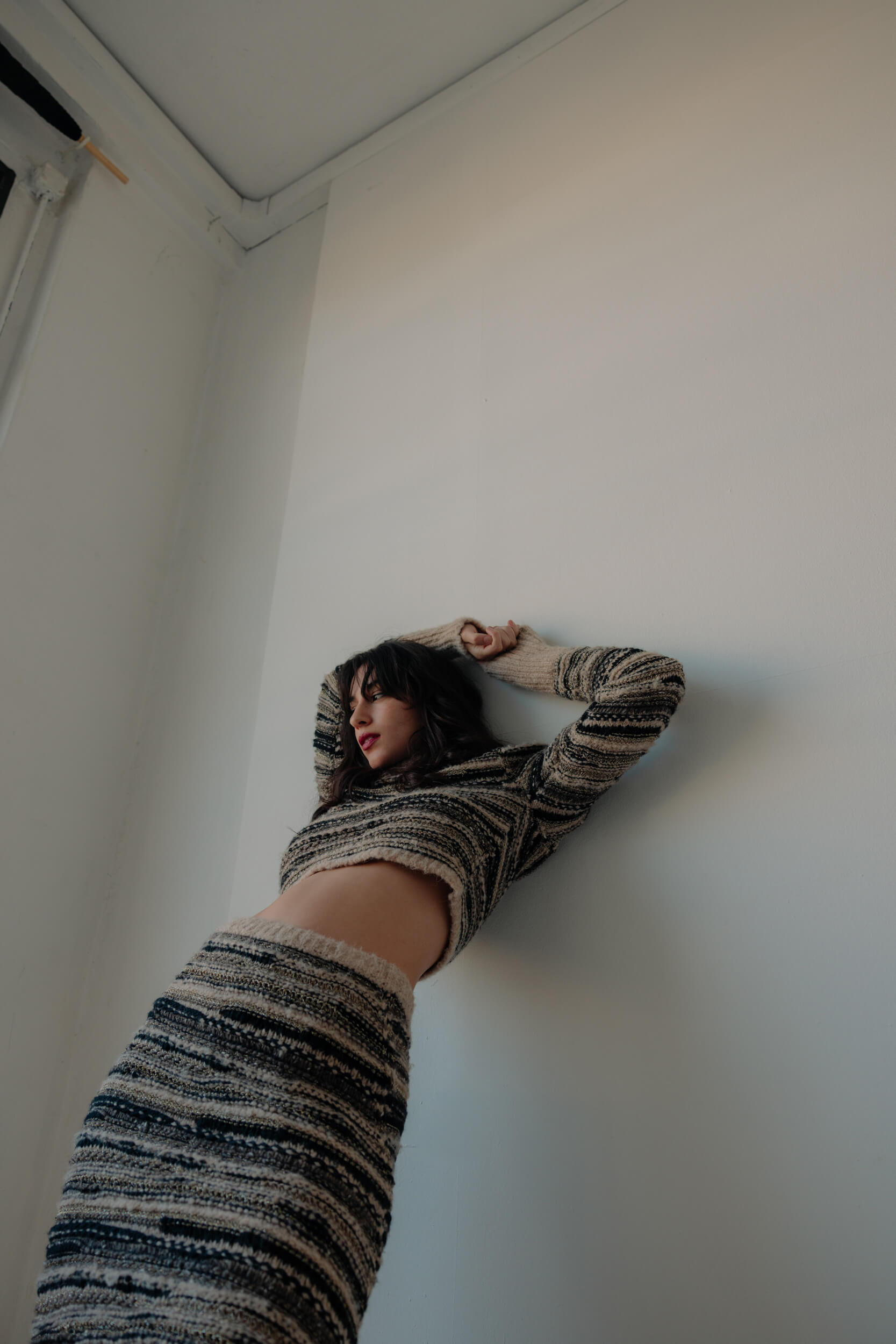
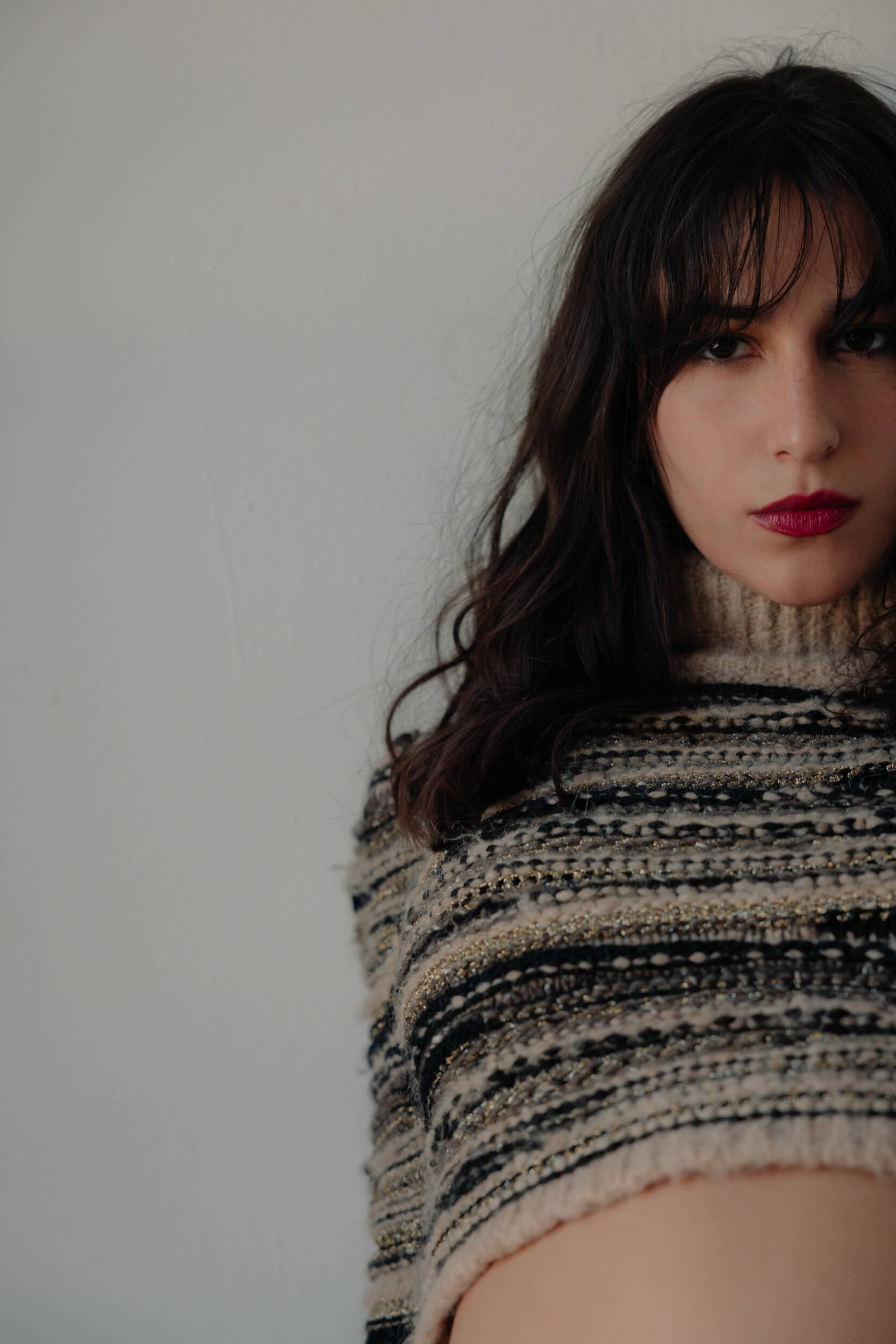
What does it mean for you to be comfortable in your skin?
I think it’s a process, sometimes infinite. It is not said that when you start to feel comfortable in your skin, you can then stay in that state; often, we regress and progress cyclically. However, it is something that I very much seek and that I have earned, the ability to look in the mirror and say that I like what I see, not only aesthetically but also internally. Sometimes I am there, but other times I am less so because it is a matter of feeling comfortable not only in your body—it is very important to feel proud of what makes you different, which goes beyond the canons that define what is considered beautiful and acceptable—but it is also about feeling comfortable with who you are.
For example, at this very moment, I do not feel 100% comfortable with who I am as a person; however, I know that it depends a lot on the context in which you find yourself. Sometimes we demand too much from ourselves, but it is nice to think that it is a process, something that needs to be constantly improved. In life, I set the goal of becoming the version of myself that I like the most, which may not please other people, but I want to learn to say, “This is me. Maybe others don’t like me, but I like myself a lot,” valuing myself as a person.
I hope one day to feel proud of myself as a person, to like myself, to want myself as a friend, to esteem myself, and I believe that this is a goal that I will achieve.
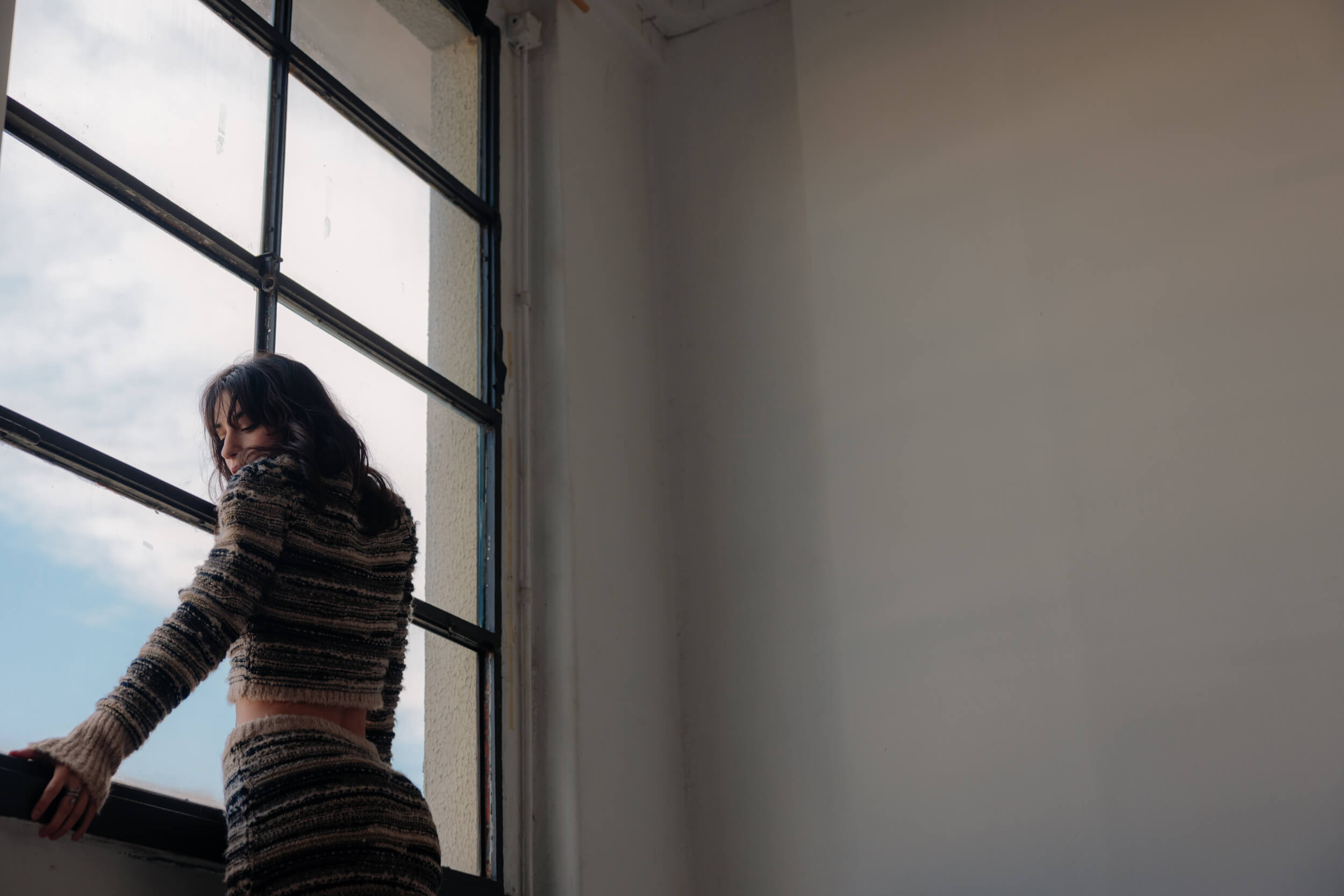
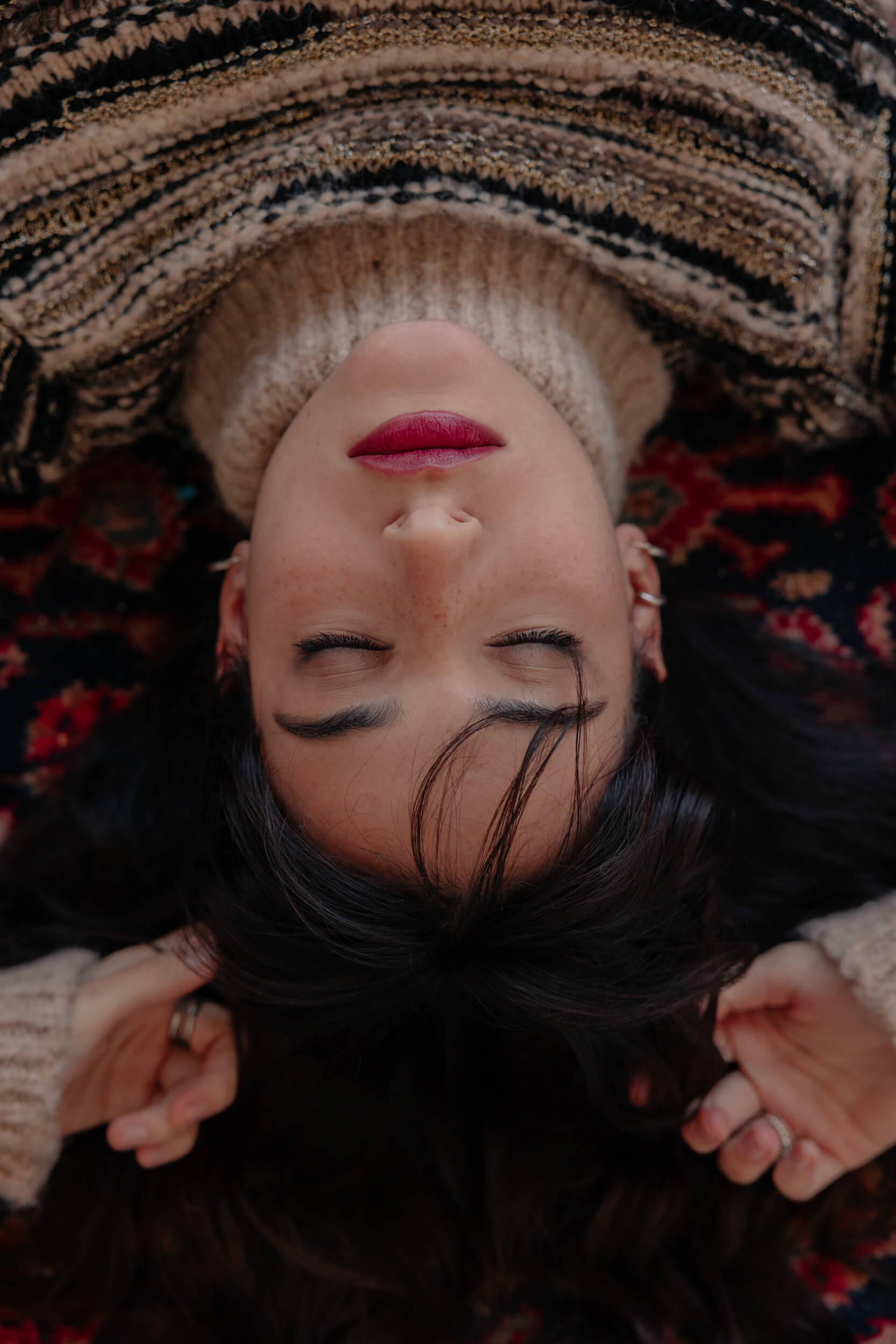
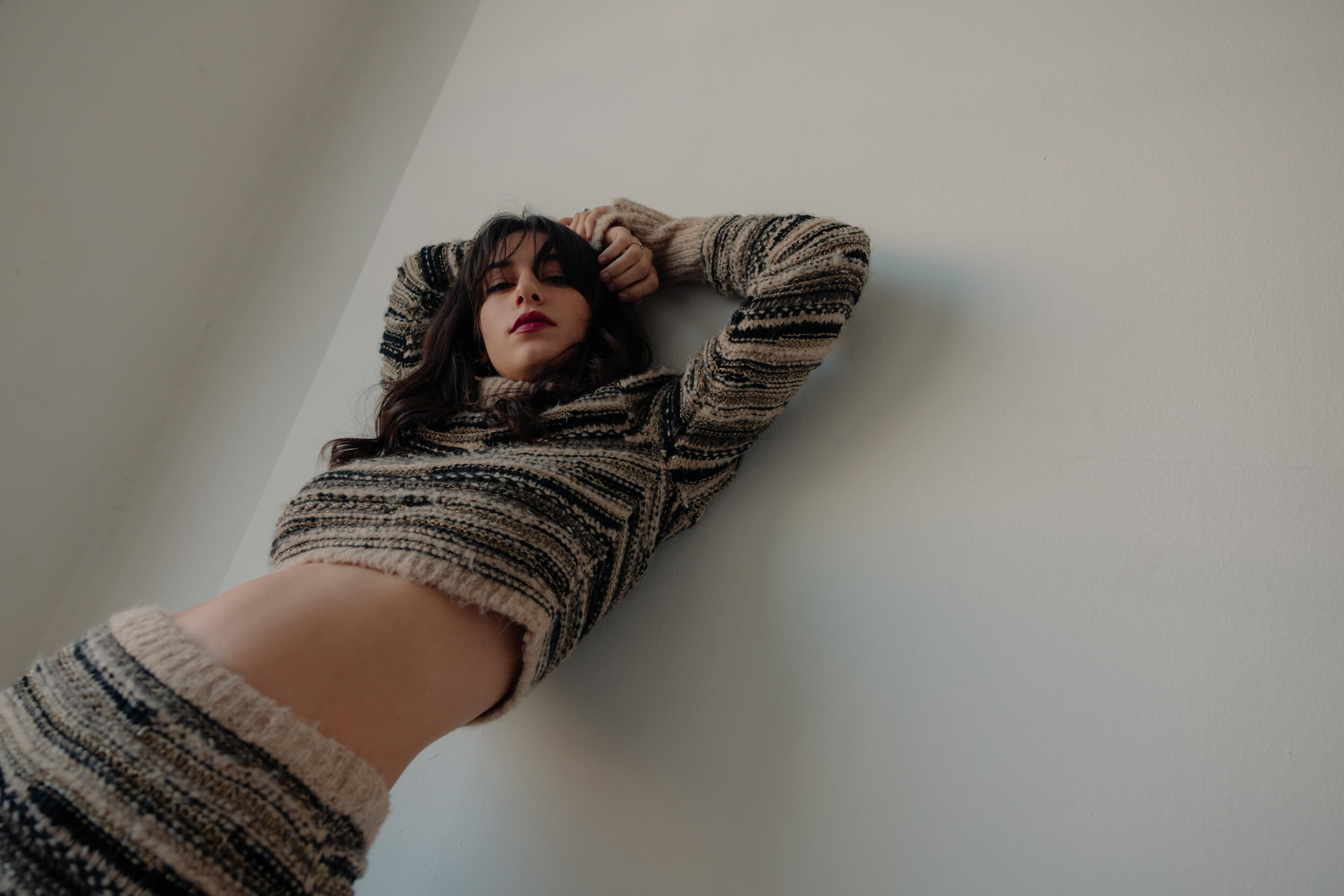
Every now and then, however, you can actually reach that goal…
Yes. It is complicated, of course, also because we are very self-critical, we seek perfection, which, in my opinion, is not part of our nature. We often tend to talk to ourselves as enemies: I have read that the way we talk to ourselves often does not correspond to the way we would say the same thing to a friend. Sometimes I think about it, and when I am too hard on myself, I tell myself: “If you don’t treat yourself as you would treat a friend, then you are doing something wrong.” Another goal I would set for myself would be to talk to myself with a little more love and not criticize myself too much, even when I make mistakes. There are many mistakes that we make for which we blame ourselves too much, sometimes in a non-constructive way…
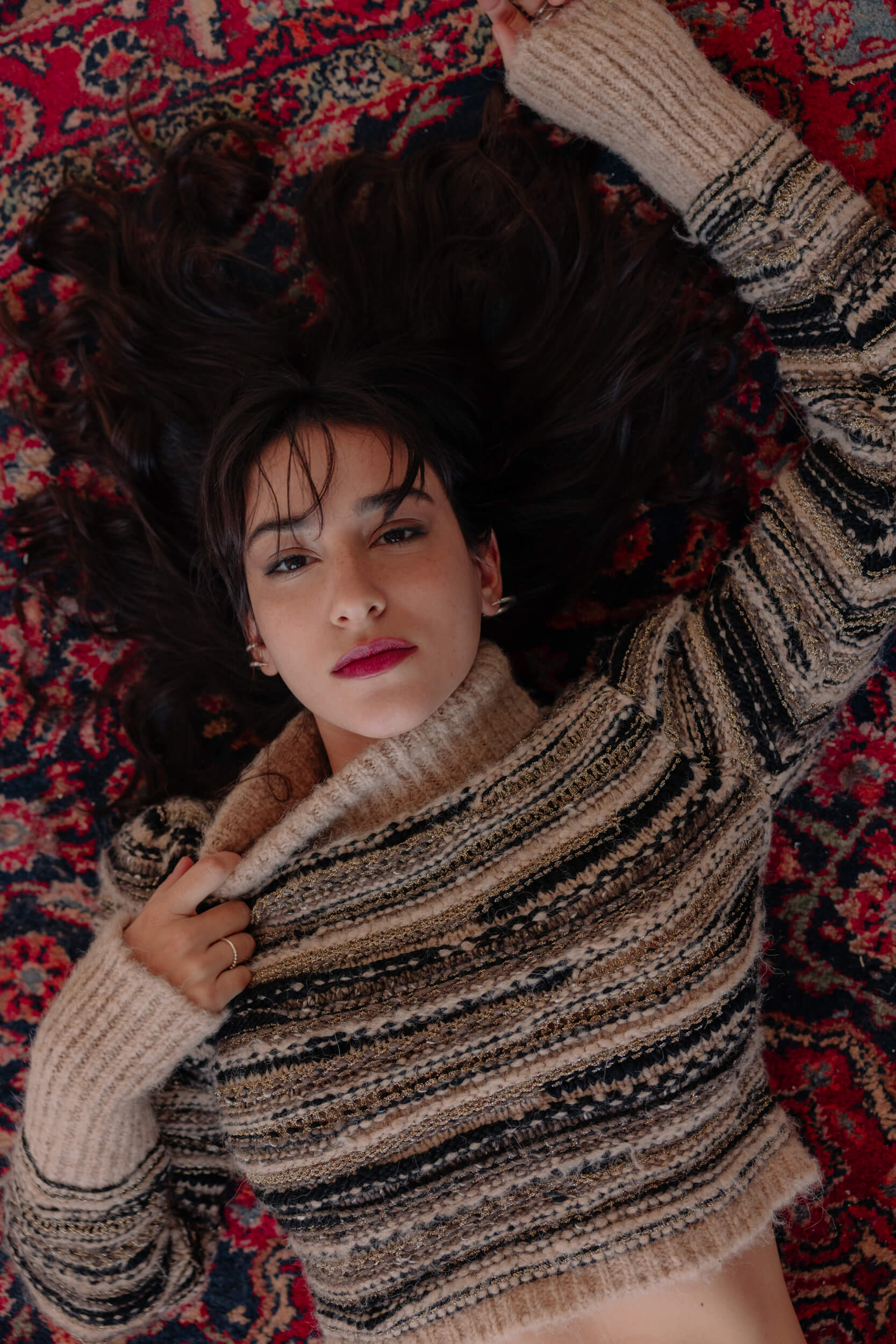
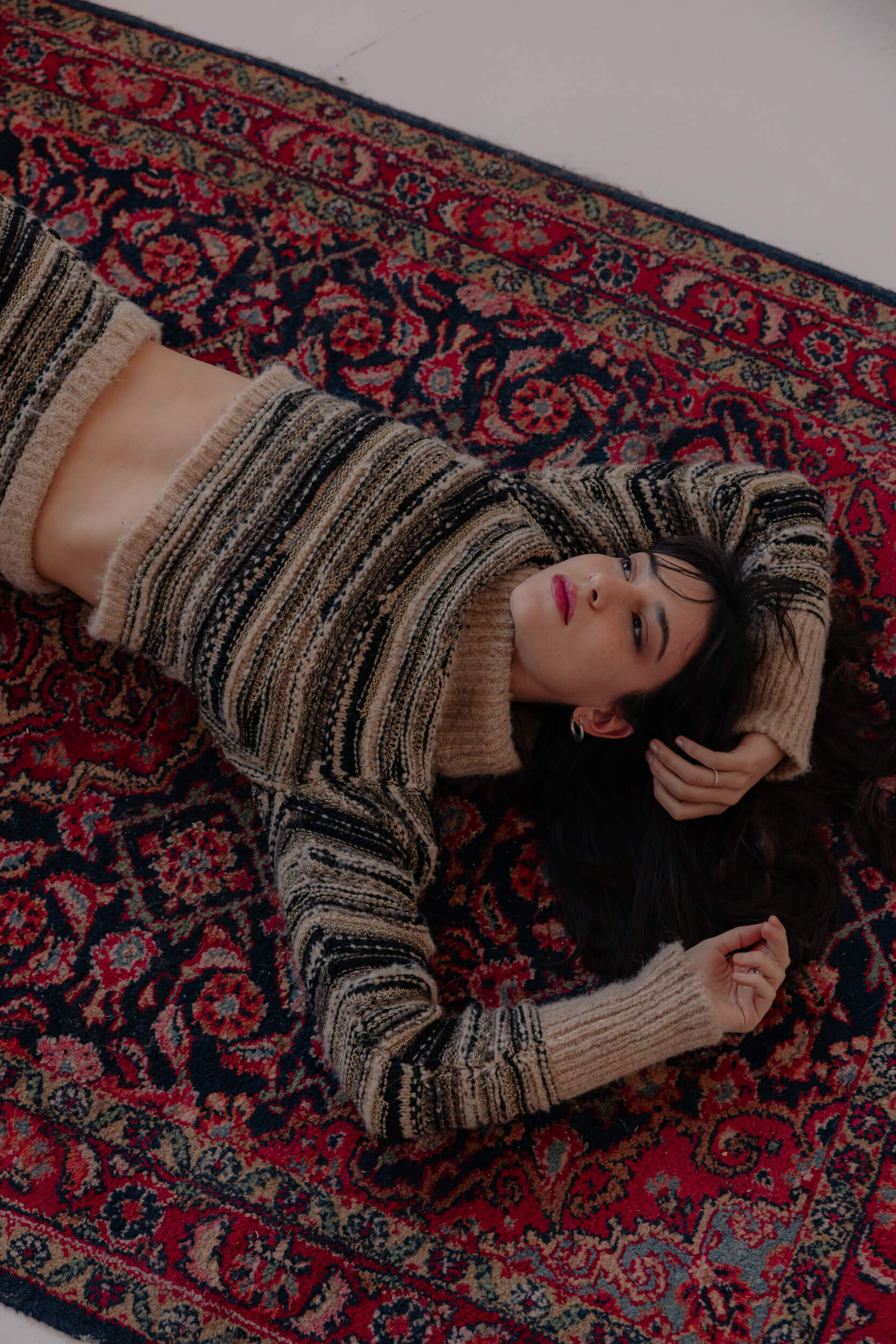
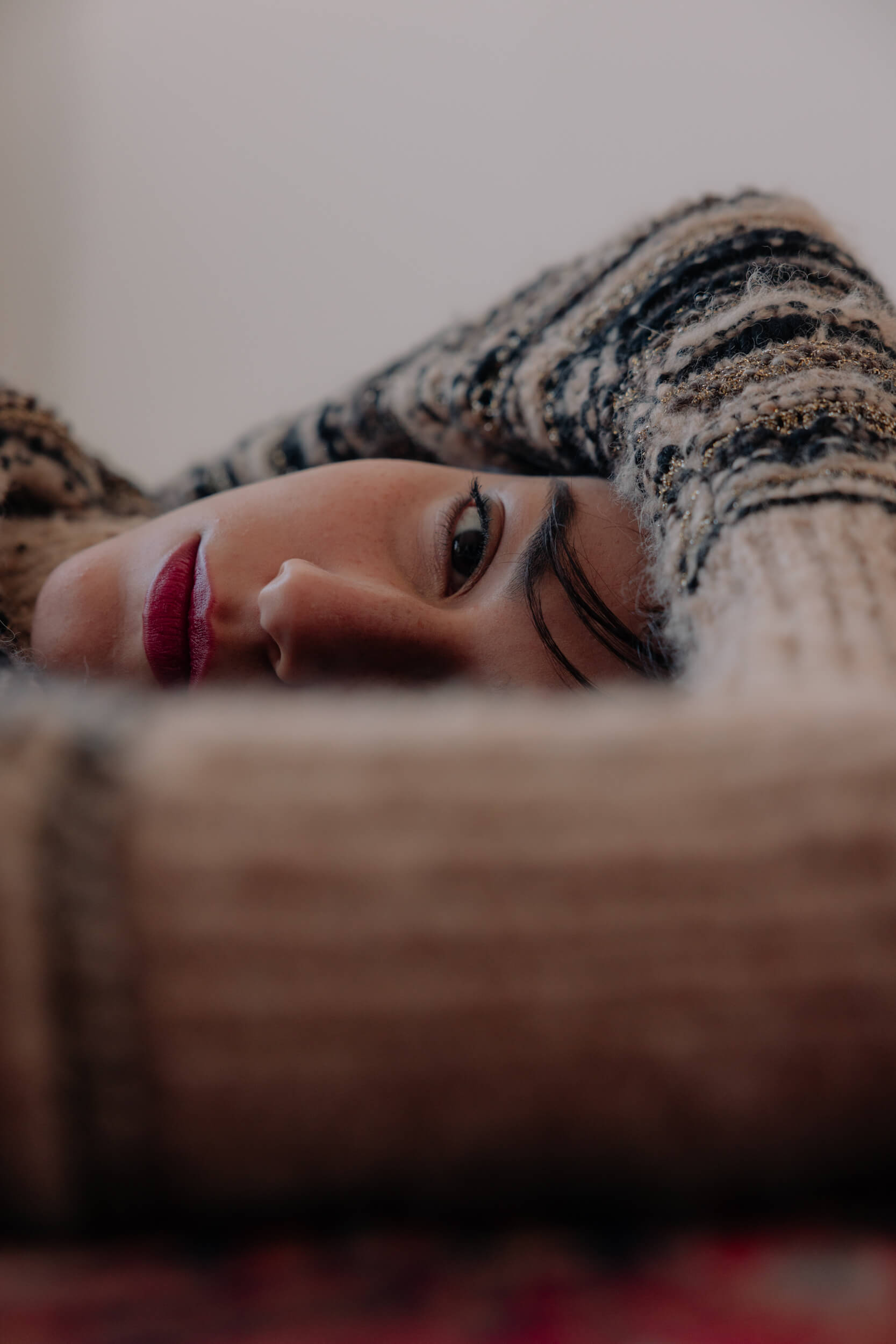
What is your happy place?
Any place that is by the sea.
In particular, a place where I was reborn and discovered many things is Fuerteventura. There I found love, many wonderful people, and many passions. I go back there very often, and when I go back, I feel at home: there I have the opportunity to live the most authentic and natural part of me, a place where I can walk around barefoot, surf, and feel wild but in the right way. Nature allows you to be whoever you want.
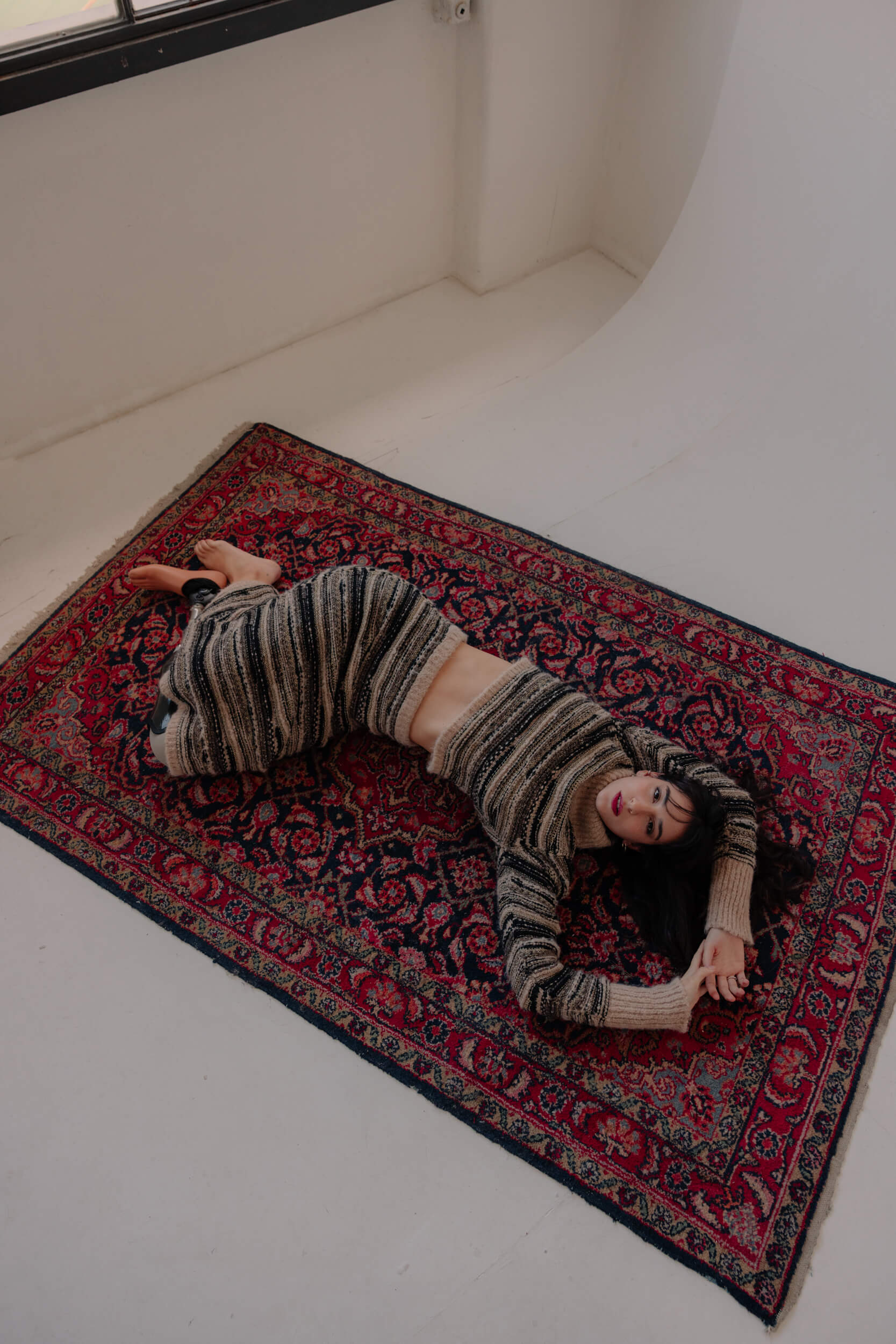
Photos & Video by Johnny Carrano.
Makeup and hair by Sofia Caspani.
Styling by Stefania Sciortino.
Thanks to Lorella Di Carlo.

